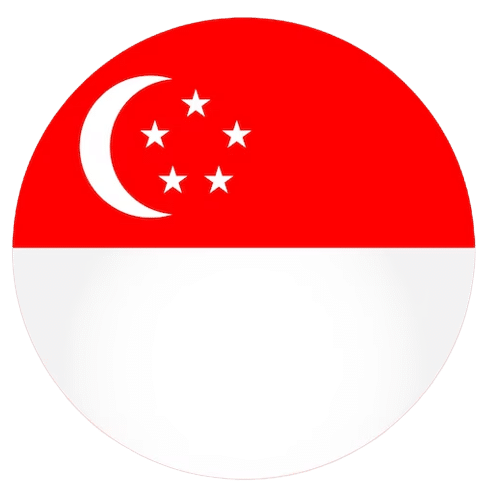
Singapore Changi Airport

Singapore Visa Interview Questions and Answers
Goh Jun Cheng
October 16, 2023

Table of Contents
Introduction
Applying for a visa to visit or work in Singapore can seem daunting, with many requirements and documents needed. The visa interview at the Singaporean embassy is often the most stressful part, as you will be asked questions about your travel plans, work, finances, and more.
Proper preparation is key to having a smooth interview and increasing your chances of visa approval.
This comprehensive guide will provide sample questions frequently asked during the Singapore visa interview along with suggested answers. Read on to learn how to best prepare for your interview.
Frequently Asked Questions About Your Travel Plans
Why are you traveling to singapore.
For a tourist visa, emphasize sightseeing or visiting family and friends. For a work visa, focus on the job offer and company. Be specific but concise.
Suggested answer: “I am traveling to Singapore on a tourist visa. I will be spending two weeks visiting major attractions like Gardens by the Bay, Sentosa Island, and the Singapore Zoo. I also plan to experience the diverse food culture and do some shopping during my stay.”
What are the dates of your trip?
Be sure your dates align with your ticket bookings and itinerary. Know your arrival and departure dates.
Suggested answer: “I will be in Singapore from March 15 to March 29, 2022, which is 14 days total.”
Where will you be staying during your time in Singapore?
Have lodging details ready, whether it’s a hotel booking, rented apartment, or friend/family’s house.
Suggested answer: “I will be staying at the Park Regis Hotel, located on Merchant Road in the Clarke Quay area. I have a reservation booked for the duration of my stay.”
What places or attractions do you plan to visit in Singapore?
Mention top landmarks and destinations relevant to the purpose of your trip. Don’t over-list attractions.
Suggested answer: “During my two week stay, I plan to visit Sentosa Island, Gardens by the Bay, Raffles Hotel, the Singapore Flyer, Marina Bay, and Singapore Botanic Gardens. I look forward to experiencing the city’s diverse culture.”
Common Questions About Your Finances and Employment
Who is paying for your travel expenses.
For a tourist visa, highlight your personal savings or income. For a work visa, focus on company sponsorship. Provide evidence of funds if asked.
Suggested answer: “As this is a tourist trip, I will be paying for all expenses from my personal savings account, which has sufficient funds to cover flights, hotel, food, and spending money for two weeks in Singapore.”
What is your current employment status and occupation?
For a tourist visa, your current job is less relevant. For a work visa, detail the job offer and contracted position.
Suggested answer: “I currently work as a Software Engineer for XYZ Tech Company based in San Francisco. I have been employed there for the past 5 years.”
What is your total monthly or annual income?
Give an accurate figure that aligns with pay stubs or tax documents you may need to provide later. Financial stability is key.
Suggested answer: “My total annual income at my current job is $85,000 USD per year, before taxes.”
Does your employer know you are traveling to Singapore?
For a tourist visa, your employer likely doesn’t need to know. For a work visa, describe your company’s Singapore office or affiliation.
Suggested answer: “Yes, I have notified my employer about my upcoming business trip to Singapore. I will be meeting with the Singapore office to discuss expansion plans.”
Questions About Your Ties and Plans to Return Home
Do you have family members or other ties in your home country that will require you to return.
Highlight spouse, children, parents, job, school enrollment, or other commitments that necessitate your return.
Suggested answer: “Yes, I have significant ties that require me to return to my home country after my visit. I have a full-time job, own a house, and live with my spouse and children in my hometown. I will return after my 2 week stay.”
What are your post-travel plans when you go back to your home country?
Reassure the interviewer you will return at the end of your authorized stay and have plans after. Don’t mention trying to extend your visa or stay.
Suggested answer: “I plan to return to my home country after two weeks in Singapore to go back to my regular job and daily life with family. The trip is intended as a one-time vacation.”
Additional Tips for Acing Your Interview
- Dress professionally and present yourself well
- Maintain eye contact and smile
- Provide clear, concise answers without over-explaining
- Be polite and respectful
- Arrive early so you are not rushed or stressed
With preparation and practice, you can feel confident tackling the questions and having a successful visa interview in Singapore! Best of luck with your application.
Singapore Immigration & Checkpoints Authority. “Prepare for your Singapore visa interview today.” ICASingleton . https://www.ica.gov.sg/visitor/tips_for_a_successful_visa_interview
Tan, Jeanette. “Top Questions Asked During a Singapore Visa Interview.” SG Travel Tips . March 23, 2021. https://www.sgtraveltips.com/singapore-visa-interview-questions.html

Goh Jun Cheng is the chief staff writer for SingaporeAirport.com. Jun Cheng graduated with a degree in journalism from Nanyang Technological University in Singapore.
He has over 5 years of experience writing about aviation, tourism, and lifestyle topics relevant to locals and visitors in Singapore. His articles provide insights into the rich culture, cuisine, and attractions of Singapore. Jun Cheng is an avid traveler who has visited over 15 countries.
When he is not writing or traveling, he enjoys photography, trying new foods, and hiking. As a longtime Singapore resident, Jun Cheng is passionate about sharing hidden gems and perspectives about his home country.
Leave a Comment Cancel reply
Save my name, email, and website in this browser for the next time I comment.
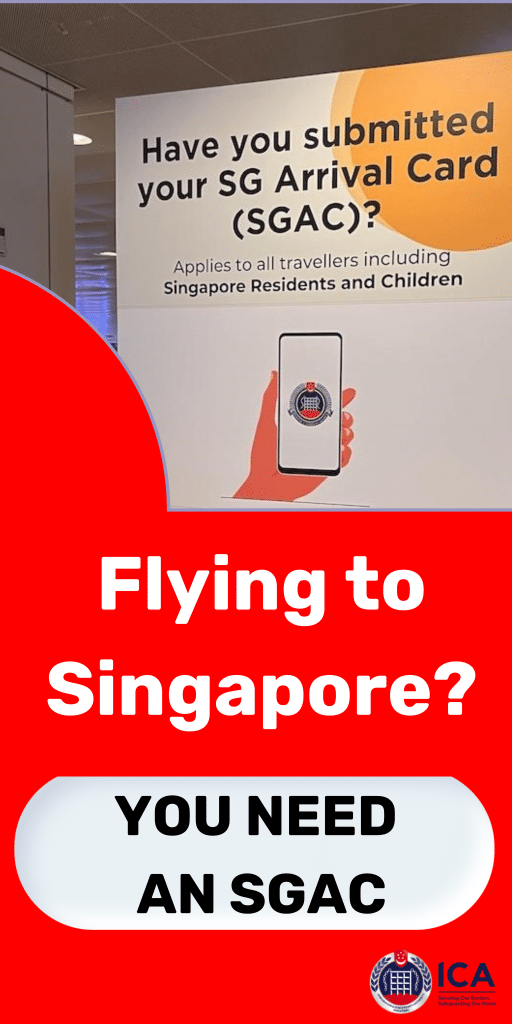
most recent

SG Arrival Card (Singapore e visa) Guide: Everything you need to know

Guía de la tarjeta de llegada SG (visado electrónico de Singapur): Todo lo que necesita saber
Discount singapore tourist sim cards available for changi airport pickup, is the singapore visa free for tunisian citizens, is the singapore visa free for sudanese citizens.
© 2024 SINGAPORE AIRPORT
Update May 10, 2024
Information for u.s. citizens in the middle east.
- Travel Advisories |
- Contact Us |
- MyTravelGov |
Find U.S. Embassies & Consulates
Travel.state.gov, congressional liaison, special issuance agency, u.s. passports, international travel, intercountry adoption, international parental child abduction, records and authentications, popular links, travel advisories, mytravelgov, stay connected, legal resources, legal information, info for u.s. law enforcement, replace or certify documents.
Tourism & Visit
Study & Exchange
Other Visa Categories
U.S. Visa: Reciprocity and Civil Documents by Country
Visa Information & Resources
Share this page:
Rights and Protections for Temporary Workers - Japanese
Rights and Protections for Temporary Workers - Turkish
Rights and Protections for Temporary Workers - Hebrew
Rights and Protections for Temporary Workers - Albanian
Rights and Protections for Temporary Workers - Tagalog
Rights and Protections for Temporary Workers - Russian
Rights and Protections for Temporary Workers - Polish
Rights and Protections for Temporary Workers - Ukranian
Visa Wizard
Visa Denials
Fraud Warning
What the Visa Expiration Date Means
Automatic Revalidation
Lost and Stolen Passports, Visas, and Arrival/Departure Records (Form I-94)
Directory of Visa Categories
Straight Facts on U.S. Visas
Customer Service Statement
Photo Requirements
Photo Examples
Digital Image Requirements
Photo Frequently Asked Questions
Photo Composition Template
Online Immigrant Visa Forms
DS-260 Immigrant Visa Electronic Application - Frequently Asked Questions (FAQs)
DS-160: Online Nonimmigrant Visa Application
DS-160: Frequently Asked Questions
Administrative Processing Information
Visa Appointment Wait Times
Nonimmigrants in the United States–Applying for Visas in Canada or Mexico
Frequently Asked Questions
Visa Applicants - State Sponsors of Terrorism Countries
What is a U.S. Visa?
About Visas - The Basics
Rights and Protections for Foreign-Citizen Fiancé(e)s and Spouses of U.S. Citizens and Spouses of Lawful Permanent Residents
Your Rights and Protections
Ineligibilities and Waivers: Laws
Rights and Protections for Temporary Workers
Advisory Opinions
Fees for Visa Services
Treaty Countries
Fees and Reciprocity Tables
Temporary Reciprocity Schedule
Country Acronyms
Reciprocity: What's New? 2019 Archive
Reciprocity: What's New? 2022 Archive
Reciprocity: What's New? 2020 Archive
Reciprocity: What's New? 2021 Archive
Reciprocity: What's New?
Reciprocity: What's New? 2023 Archive
Safety & Security of U.S. Borders: Biometrics
National Visa Center Customer Service Pledge
Americans Traveling Abroad
The United States and China Agree to Extending Visas for Short-term Business Travelers, Tourists, and Students
Special Visa Processing Procedures Pursuant to Section 306
Capitalizing on Visa Demand to Spur Economic Growth in the United States
Congressional Testimony
Cuban Family Reunification Parole (CRFP) Program Appointments
List of U.S. Embassies and Consulates - K1-K3 Visas
U.S. Government Fact Sheet on Female Genital Mutilation or Cutting (FGM/C)
Skill List by Country
Presidential Proclamation 9645 and the January 2020 Presidential Proclamation
Public Inquiry Form
List of U.S. Embassies and Consulates
Affidavit of Support Fee Refund
Immigrant Visa Prioritization
USCIS Extends Suspension of Premium Processing Service for Religious Workers (R-1) Nonimmigrant Visa Classification
Record Numbers of U.S. Students Are Studying Abroad
U.S. Student Visas Reach Record Numbers in 2007
U.S. security officials will begin scanning all 10 fingerprints of most non-Americans traveling to the United States
Electronic Submission of Diversity Visa Lottery Applications
USCIS Centralizes Filing for H-2A Petitions
USCIS Field Office Adopts Teletech Call Appointment System For Filing Waiver of Inadmissibility Applications
Application Fees for Non-Immigrant Visas to Increase on January 1, 2008
Senior Advisors to Brief Press on the Latest Developments in Iraqi Refugee and Special Immigrant Visa Issues
Briefing on Developments in the Iraqi Refugee and Special Immigrant Visa (SIV) Admissions Programs
DHS Proposes Changes to Improve H-2A Temporary Agricultural Worker Program
Testimony of Stephen A. “Tony” Edson on U.S. House of Representatives, Committee on Science and Technology Subcommittee on Research and Science Education, House Committee on Science and Technology
Update: Biometric Changes for Re-entry Permits and Refugee Travel Documents
With All the Talk about Illegal Immigration, a Look at the Legal Kind
Latvia, Estonia Sign Deals with US on Visa-Free Travel
Fact Sheet: Changes to the FY2009 H-1B Program
USCIS Announces Interim Rule on H-1B Visas
USCIS Releases Preliminary Number of FY 2009 H-1B Cap Filings
USCIS Extends Comment Period for Proposed Change to H-2A Program
USCIS Runs Random Selection Process for H-1B Petitions
17-Month Extension of Optional Practical Training for Certain Highly Skilled Foreign Students
DHS Begins Collecting 10 Fingerprints from International Visitors at Hartsfield-Jackson Atlanta International Airport
Hague Convention on Intercountry Adoption Enters into Force
USCIS to Accept H-1B Petitions Sent to California or Vermont Service Centers Temporary Accommodation Made for FY 09 Cap-Subject H-1B Petitions
USCIS Revises Filing Instructions for Petition for Alien Relative
USCIS Announces Update for Processing Petitions for Nonimmigrant Victims of Criminal Activity
USCIS to Allow F-1 Students Opportunity to Request Change of Status
Immigration Tops Agenda at North American Summit
USCIS Issues Guidance for Approved Violence against Women Act (VAWA) Self-Petitioners
USCIS Modifies Application for Employment Authorization Previous Versions of Form I-765 Accepted until July 8, 2008
Overseas Education More Attainable for Chinese Students
New York Business Group Seeks Fewer Restrictions on Foreign Worker Visas
Advance travel planning and early visa application are important. If you plan to apply for a nonimmigrant visa to come to the United States as a temporary visitor, please review the current wait time for an interview using the tool below. Not all visa applications can be completed on the day of the interview; please read the information below for more details .
Check the estimated wait time for a nonimmigrant visa interview appointment at a U.S. Embassy or Consulate.
Note: Please check the individual Embassy or Consulate website to determine if your case is eligible for a waiver of the in-person interview.
Applicants scheduling visa appointments in a location different from their place of residence should check post websites for nonresident wait times.
Select a U.S. Embassy or Consulate:
Global Visa Wait Times
Wait Time for Interview
The estimated wait time to receive a nonimmigrant visa interview appointment at a U.S. embassy or consulate and is based on workload and staffing and can vary from week to week. The information provided is an estimate and does not guarantee the availability of an appointment.
Wait Time for Interview Waiver
Wait times for applicants eligible for Interview Waiver are applicable only for locations where applicants schedule appointments to submit their passport and any required documents to a U.S. embassy or consulate. The wait time estimate does not account for the time required for a consular officer to adjudicate the application nor mailing time of passports or other documents. Refer to the website of the Embassy or Consulate Visa Section where you will apply to determine your eligibility for Interview Waiver and for instructions for submitting a nonimmigrant visa application. Note that applicants must be a national or resident of the country where they are applying to be eligible to apply via Interview Waiver.
Qualifications for an Expedited Interview Appointment
Consular sections overseas may be able to expedite your interview date if there is an urgent, unforeseen situation such as a funeral, medical emergency, or school start date. The process to request an expedited nonimmigrant visa interview varies by location. You should refer to the instructions on the website of the Embassy or Consulate Visa Section where you will interview, or on their online appointment scheduling site. You will need to provide proof of the need for an earlier appointment.
In all cases : You must first submit the online visa application form (DS-160), pay the application fee, and schedule the first available interview appointment. Only at this point will a consular section consider your request for an expedited appointment.
Note: Travel for the purpose of attending weddings and graduation ceremonies, assisting pregnant relatives, participating in an annual business/academic/professional conference, or enjoying last-minute tourism does not qualify for expedited appointments. For such travel, please schedule a regular visa appointment well in advance.
These estimates do not include time required for administrative processing, which may affect some applications. When administrative processing is required, the timing will vary based on individual circumstances of each case.
There are only two possible outcomes for U.S. visa applications. The consular officer will either issue or refuse the visa. If a visa applicant has not established that he or she is eligible for a visa, the consular officer must refuse that application. However, some refused visa applications may require further administrative processing. When administrative processing is required, the consular officer will inform the applicant at the end of the interview. The duration of the administrative processing will vary based on the individual circumstances of each case. At the conclusion of the administrative processing period, the consular officer might conclude that an applicant is now qualified for the visa for which he or she applied. The officer may also conclude that the applicant remains ineligible for a visa. Visa applicants are reminded to apply early for their visas, well in advance of the anticipated travel date.
Important Notice: Except in cases of emergency travel (i.e. serious illnesses, injuries, or deaths in your immediate family), before making inquiries about status of administrative processing, applicants should wait at least 180 days from the date of interview or submission of supplemental documents, whichever is later.
About Visa Processing Wait Times – Nonimmigrant Visa Applicants
Information about nonimmigrant visa wait times for interviews and visa processing time frames are shown on this website, as well as on U.S. Embassy and Consulate websites worldwide. It should be noted that the “Wait Times for a Nonimmigrant Visa to be Processed” information by country does not include time required for administrative processing. Processing wait time also does not include the time required to return the passport to applicants, by either courier services or the local mail system.
In addition, it is important to thoroughly review all information on the specific Embassy or Consulate Visa Section website for local procedures and instructions, such as how to make an interview appointment. Embassy and Consulate websites will also explain any additional procedures for students, exchange visitors and those persons who need an earlier visa interview appointment.
About Wait Times
* Calendar days refers to every day of the week, including days when embassies are closed (such as weekends and holidays).
† Work days refers only to days when the embassy is open and does not include weekends and holidays.
‡ A, G, and NATO applications are excluded from these wait times, as they are processed separately.
Immigrant Visa Interview-Ready Backlog Report
Rights and Protections for Temporary Workers - English
Rights and Protections for Temporary Workers - French
Rights and Protections for Temporary Workers - Spanish
Rights and Protections for Temporary Workers - Portuguese
Rights and Protections for Temporary Workers - Mandarin
Rights and Protections for Temporary Workers - Arabic
Rights and Protections for Temporary Workers - Italian
Rights and Protections for Temporary Workers - German
Rights and Protections for Temporary Workers - Vietnamese
Rights and Protections for Temporary Workers - Romanian
Rights and Protections for Temporary Workers - Korean
Rights and Protections for Temporary Workers - Armenian
Rights and Protections for Temporary Workers - Bulgarian
Rights and Protections for Temporary Workers - Czech
Rights and Protections for Temporary Workers - Hungarian
Rights and Protections for Temporary Workers - Indonesian
Rights and Protections for Temporary Workers - Lithuanian
Rights and Protections for Temporary Workers - Serbian
Rights and Protections for Temporary Workers - Thai
Rights and Protections for Temporary Workers - Mongolian
Rights and Protections for Temporary Workers - Kurdish
External Link
You are about to leave travel.state.gov for an external website that is not maintained by the U.S. Department of State.
Links to external websites are provided as a convenience and should not be construed as an endorsement by the U.S. Department of State of the views or products contained therein. If you wish to remain on travel.state.gov, click the "cancel" message.
You are about to visit:
11 things to know before visiting Singapore

Mar 9, 2024 • 6 min read

Plan for your trip to Singapore with these things you should know and insider tips © Jakub Zajic / Getty Images
Singapore has a well-cultivated image of being a safe country .
Too safe perhaps for some, who balk at its infamously strict rules and fines for flouting them, and find the gleaming modern city too sanitized for their liking. Others appreciate the clean streets and manicured gardens amidst the tall buildings along with the intriguing mix of people that make up Singapore’s multifaceted culture.
As a Singaporean who’s lived here all her life (and who has always had to explain the country to fellow travelers in foreign hostel common rooms) here’s what you need to know about Singapore, its cultural landscape, and its local customs and quirks, to help you plan your trip to the Little Red Dot.
1. Singapore is small, but with lots to see and do
Compact Singapore takes less than an hour to drive from end to end but there’s a lot packed into this small country. For a first-time visitor, three to four days is usually sufficient to see the main highlights and get a feel of the top things to do in Singapore .
If you’re really short on time, plan a layover with at least 5.5 hours and you can join one of three free transit tours organized by the excellent Changi Airport for a quick taster of what the country has to offer.
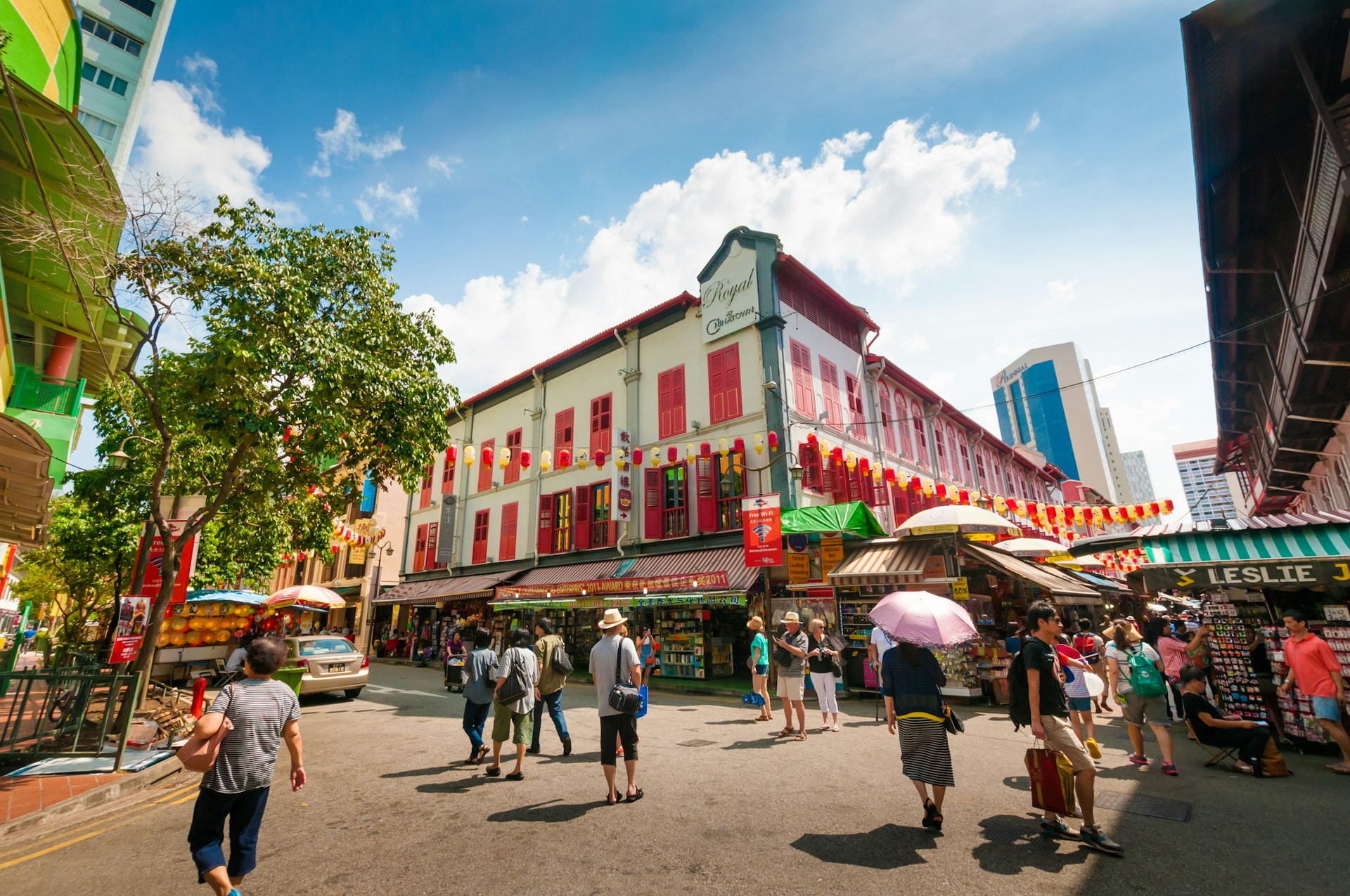
2. Pack for the tropics
Practically located on the equator, expect hot tropical weather ranging from 25 to 35ºC (77 to 95ºF) every single day in Singapore. A small umbrella is essential in case of scorching rays or sudden downpours.
What can be tough for those used to temperate climates is Singapore’s high humidity – 60 to 90% on average throughout the year, so be prepared to sweat it out. Pack light materials or bring a small fan or hankie around with you. Anyone basking under the afternoon sun who’s not on the beach is definitely a tourist – be sure to slap on the sunblock!
Funnily enough, it tends to be a lot colder indoors than outdoors because shopping malls and central cooling overcompensate for the heat.
A scarf or a light jacket will keep you warm, offer extra sun protection and are the perfect cover-up if you plan to visit religious buildings.
3. Singapore is an independent country
With a majority Chinese population, some people mistakenly assume that Singapore is a part of China, which is not the case. Most Chinese Singaporeans are descendants of southeastern Chinese immigrants who sailed across the seas decades ago.
Singapore may be hard to spot on a map, but you’ll find it just south of the Malaysian peninsula in Southeast Asia, four hours away from China by plane. On that note, despite its proximity and commonalities in shared culture and history, Singapore is also not a part of Malaysia, though it was very briefly back in 1963 before Singapore became fully independent in 1965, making next year – 2025 – the 60th anniversary of the republic.
4. Most Singaporeans speak excellent English
Singapore is an easy place for Western tourists to explore on their own because of the widespread use of English here. Fun fact: Singapore actually has four official languages: Mandarin, Bahasa Melayu and Tamil represent the three major ethnic groups found here (Chinese, Malay and Indian respectively), and English is the main language used in schools and for business, which also allows for conversation across ethnicities.
5. Natural disasters are unlikely in Singapore
Singapore may not have scenic mountain ranges or awe-inspiring topography, but it’s also out of the path of any major tectonic movement. You are unlikely to face any major natural disasters – no earthquakes, volcanos, typhoons or sandstorms here.
In the worst case, there may be flash floods during particularly rainy periods or haze blanketing the island from forest fires around the region, but these are usually temporary and minor inconveniences.
6. Singapore is a safe and stable place to visit
Singapore is also well-known for its generally stable political and business climate, often ranked as one of the least corrupt countries in the world. Strikes that can disrupt travel plans are practically nonexistent here.
The crime rate in Singapore is also relatively low with lots of surveillance and a police force that people trust in. As a single woman, I’ve never been too worried about wandering around Singapore on my own even at night, but do maintain some common sense for your own safety as one of our popular slogans here goes: low crime doesn’t mean no crime.
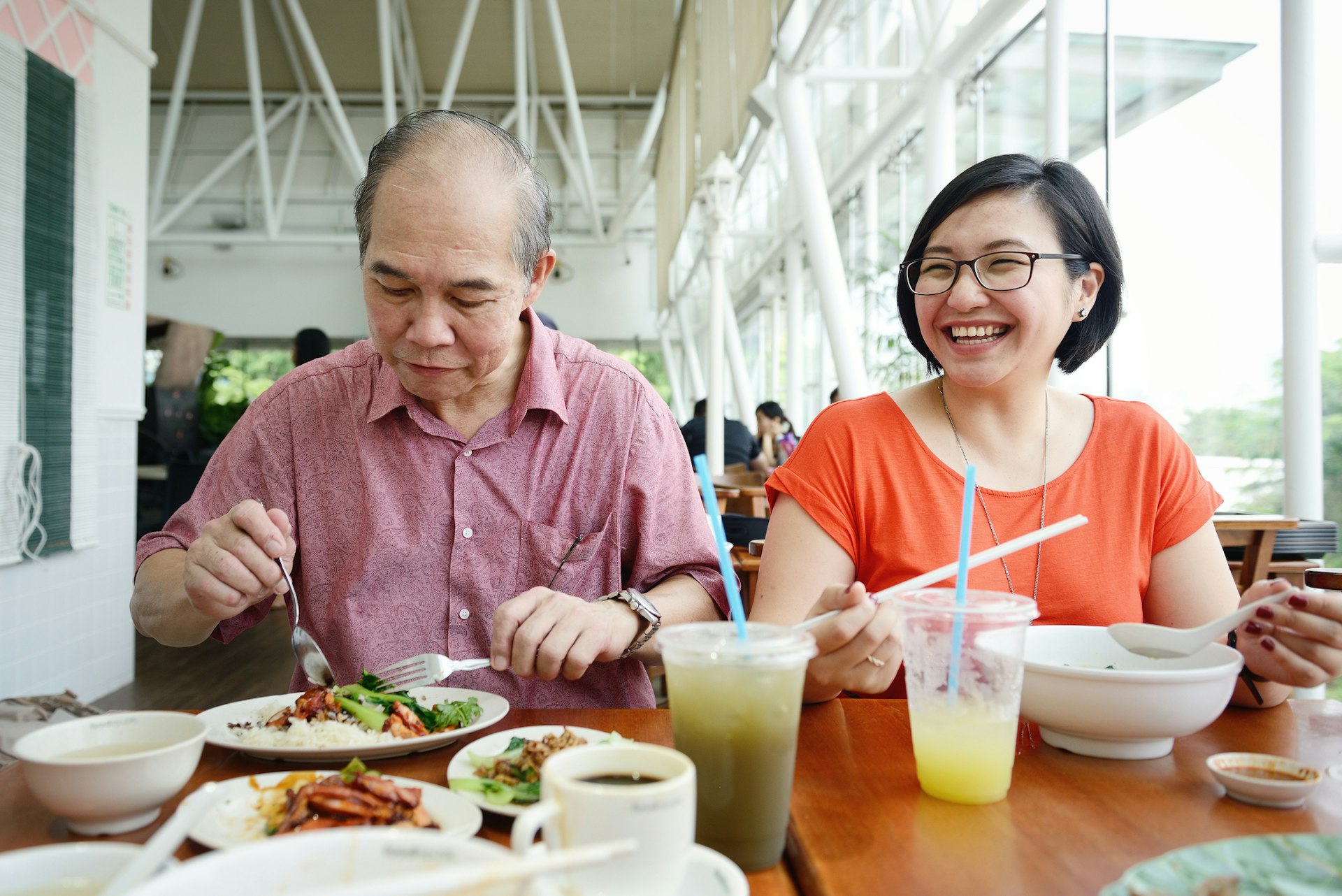
7. Carry both cash and credit cards
How many Singapore dollars you change before your trip largely depends on where you plan to go . Most major tourist attractions and shops in shopping malls will accept credit cards, and other cashless options like contactless payments and smart wallets are also common.
Those planning to take public transport in Singapore can use their credit cards on the public buses and MRT card readers for convenience, but purchasing a local EZ-Link card or transport pass may be more worthwhile depending on how much travel you plan to do. However, do carry some cash around with you as it remains the prevalent method of payment for most small businesses, eating at hawker center stalls, or taking a taxi. Try to break notes of larger denominations ($50/$100) into smaller ones ($2/$5/$10) when possible.
8. Prebook attractions to avoid waiting in line
There’s a joke that a Singaporean’s favorite pastime is to queue for things, but that’s not something you want to waste time on. If there is an option to prebook tickets online or make a reservation, just do it. This is key on busy weekends and peak vacation periods like the mid- and year-end school holidays.
An attraction’s official website is usually the best place to get tickets, but browse other booking platforms before you check out as these sites may offer special seasonal discounts or multi-bundle prices. Also check the Visit Singapore website as it sometimes runs incentive programs for tourists.
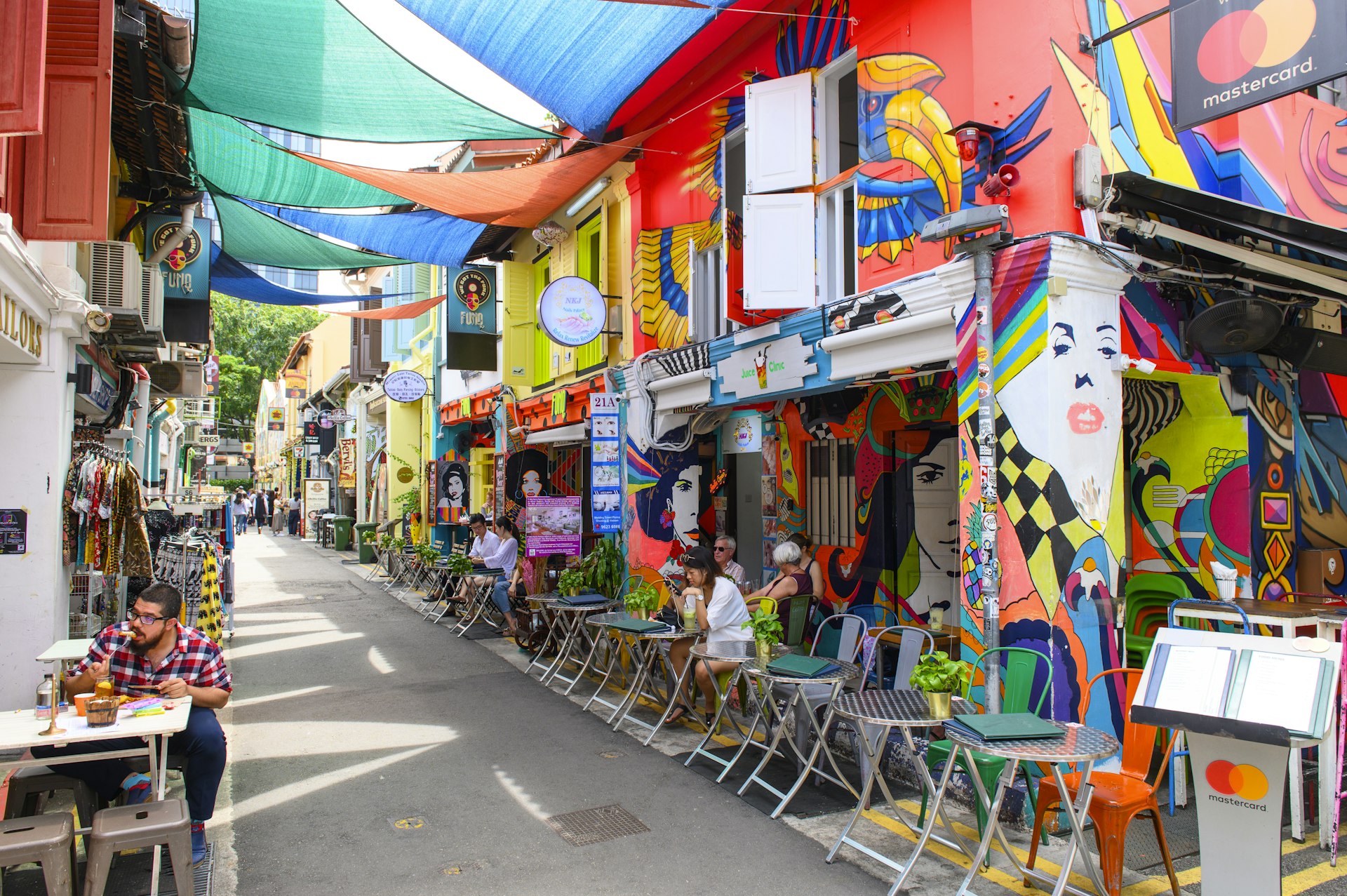
9. Tipping is not expected
Tipping is not expected in Singapore. If you’re eating out in a restaurant or cafe, there is usually a 10% service charge included in the bill. Some places may have a tip box but otherwise, additional tips are not mandatory or expected, though they are appreciated in the service line.
10. Understand the art of "chope-ing"
If you are eating at food centers or working at co-working spaces, particularly within the central business district, you may notice empty tables with strategically placed items like umbrellas, tissue packets or lanyards on the seats. This is a local practice to "chope" or reserve a seat while everyone is queuing up at the stalls. Most people honor this informal reservation system and will look elsewhere for available seats.
11. Yes, you can drink the tap water
There's no need to buy bottled water in Singapore. The tap water here is treated and perfectly safe to drink. You'll find that most attractions have water coolers where you can refill your reusable bottles while you're out and about during the day.
This article was first published Sep 22, 2023 and updated Mar 9, 2024.
Explore related stories
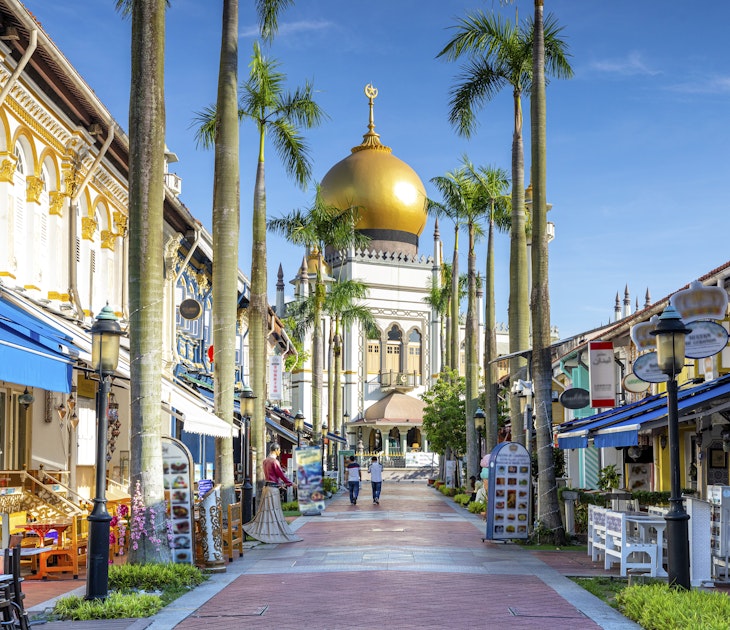
Tips & Advice
Apr 16, 2024 • 12 min read
Singapore's allure goes beyond its iconic hotels, manicured gardens and world-class airport – here are the best places to visit when you arrive.

Apr 6, 2024 • 6 min read

Mar 8, 2024 • 5 min read

Mar 8, 2024 • 6 min read

Feb 9, 2024 • 12 min read

Jan 5, 2024 • 20 min read

Dec 15, 2023 • 7 min read

Oct 28, 2023 • 10 min read

Oct 15, 2023 • 3 min read

Jun 2, 2023 • 8 min read
- Entertainment
12 most common interview questions in Singapore & how to answer them

You check your inbox.
There it is – an email from your dream employers inviting you for an interview.
After the excitement recedes, you get sucked back to reality. Now you’re wondering: “What kind of questions will they ask me, and how can I best answer them?”
Dear jobseeker, we got you.
In this article, we’ve curated the most common interview questions in Singapore and how you can answer them . Practice answering them and present yourself as the employee they have always been looking for.
The most common job interview questions in Singapore:
1. can you tell me about yourself, what are they trying to find out with this interview question.
It is a safe bet this will be one of the first questions asked, and the way you answer it will set the tone for the entire interview.
Employers aren’t trying to learn about your favourite colour – they want to know why you are the best candidate for the job. They want to hire the best person for the job, and your task will be to convince them that you are that person.
Give information about how your professional life relates to the position

There aren’t two positions that are exactly the same – every of their title is.
From the job description, you can find out what are the qualifications and skillsets that the employer is looking for. This will help you know what to highlight in all of your previous work experiences, education, achievements, and skills.
Tip: Answer in chronological order. You don’t have to go year by year, but as much as possible, try to detail the experiences and skills you’ve gained in an organised fashion. That will leave a lasting impression on the employer.
2. Why do you want to work here?
This is one of the most common interview questions because it gives the interviewer deeper insights into what your intentions and motivations are, whether or not you’ll be a valuable contributor on the team, and whether you have the right attitude to fit into the company.
Do your research
Find out everything there is about the company and the position.
Study the company’s website and follow their activities on social media. Be clear on the company’s mission and what their core values are. Take it a step further by reading the most recent articles that the company has published, or articles that have been published about the company.
Top 3 strategies to answer “Why do you want to work here?”
- Prove that you are the solution to their problem All that research should give you a pretty good grasp of the problem that the company is hiring you to solve. It is impressive to point out their problems and needs, but you’ll take it up a notch if you can convince them why you are the perfect solution for it.
- Have a personal story to tell It is important to let your personality shine through, especially when employers are known to favour candidates with a pleasant attitude more than just someone with a specific skillset.
After all, skillsets can be trained.
The easiest way to showcase your personality is to talk about something that really interests you or something that you’re really passionate about. Weave that into your personal story and your excitement for the position will naturally be felt by the employer.
- Be very specific with your answers
Here’s an example of what we mean: “I want to work here because I admire the company’s value – especially the one about empowering employees. It is delightful to know that the organisation takes the time to understand each employee and proceeds by playing to their individual strengths.”
When you are this specific, the employer can tell that you are not just interested in the position, but also the company. And you’ve done your research.
3. What are your strengths? Common interview questions
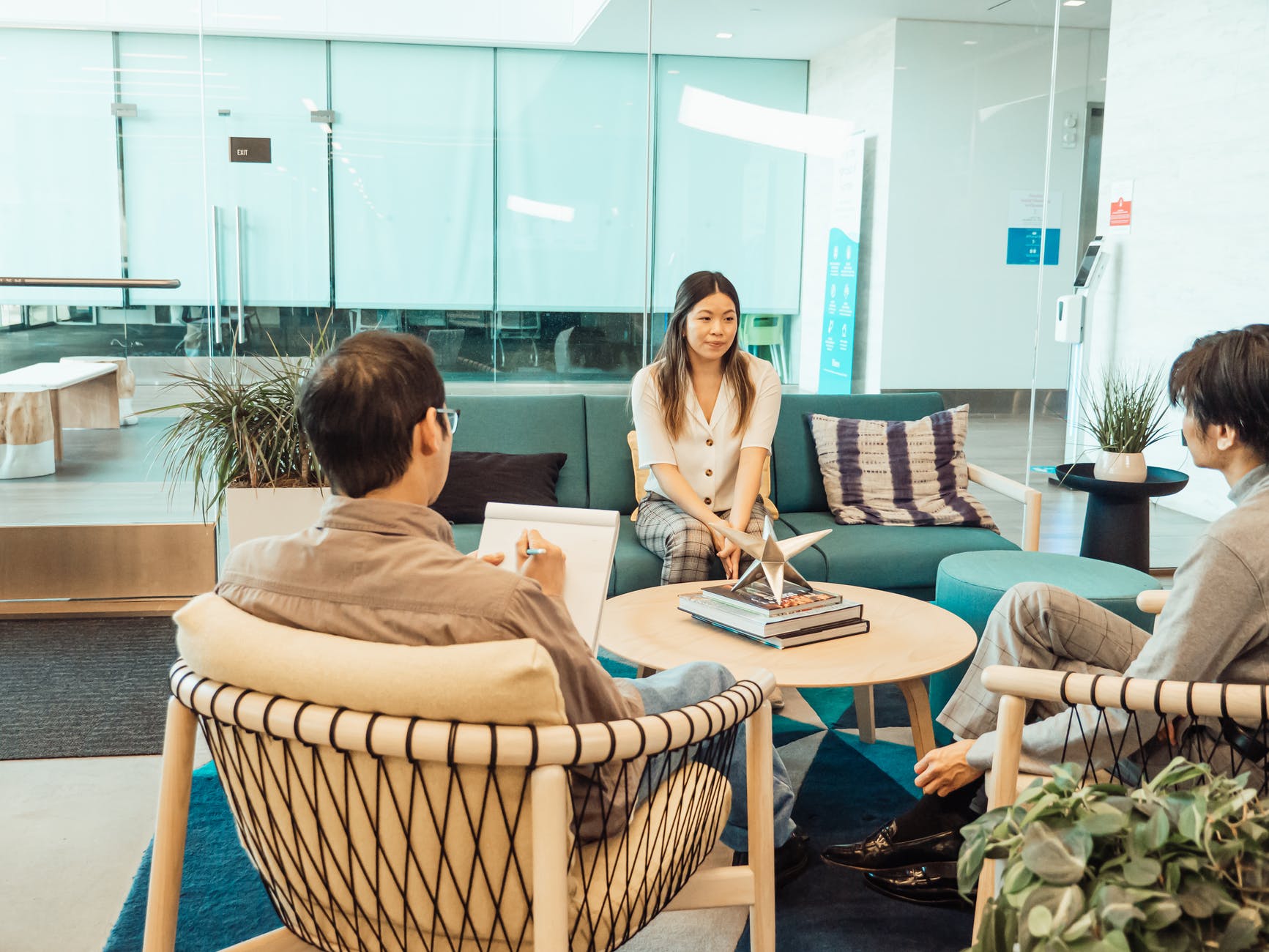
This is much more straightforward. They want to know if your strengths complement the requirements and expectations of this position.
3 steps to answering “What are your strengths?”
- Make a list
First, review the job posting very carefully and make a list of the qualifications, experience, and skills needed to excel at the job. For example, recognise what is it the company needs most. Whether it’s analytical skills, critical thinking, or leadership skills.
- Pinpoint your strengths
Next, evaluate your career accomplishments and how they relate to the position.
Besides each of the points on the list, you made in Step 1, jot down a sentence or two about how you match up with those skills. You should detail specific ways of how you excel at them and make sure to include quantifiable examples like “Helped to grow B2C sales by 20per cent”.
- Narrow it down
Focus on the 2 – 3 strengths you want to highlight, preferably your strongest assets. The better you are able to explain how your strengths relate to the position, the more likely you are at securing a job offer.
4. What are your weaknesses? Common interview questions
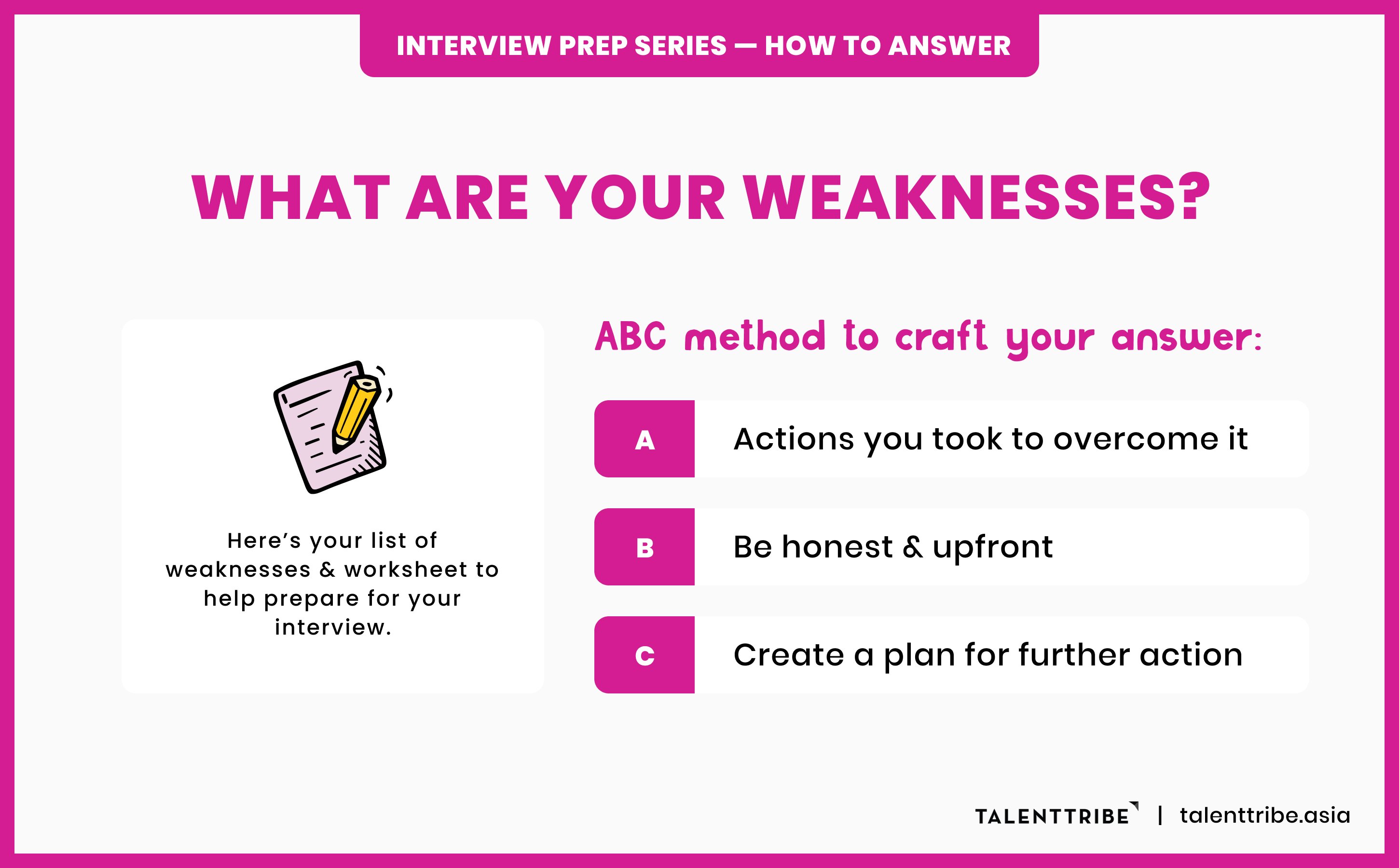
There is strength in vulnerability. Showcasing your weakness does not mean filtering yourself out of the job, but you will have to understand the best way to answer it. Here are the 3 main points they’re looking out for:
- Self-awareness
- Plans for improvement
- Will that hinder your performance on the job
Use the ABC method to answer this question
- A: Actions you took
- B: Be upfront about it
- C: Create a plan for further action
Actions you took
When you talk about your weaknesses, accompany it with actions that are in progress to overcome the weakness.
Example: You may be applying to be a journalist, but lack the flair that one would need with words to perform on the job. What will help show the employer that you’re being proactive about it would be to join a club that produces monthly newsletters for the school. That will give you practical hands-on experience to get accustomed to writing. Also shows that you are serious about pursuing a career in journalism.
Be upfront about it
State exactly what your weakness is and be upfront about the struggles you face. If there is a particular reason why you’re struggling with the weaknesses, share it honestly with the interviewer as well.
Create a plan for further action
Be forward-looking.
Impress your interviewer by telling them what you plan to do to better manage your weakness. Go one step further and tie it to their company as well as the job. It shows that you have done in-depth research on them.
Example: You may be applying for a marketing position in a retail company, but are unfamiliar with running paid ad campaigns – which so happens to be a non-vital requirement for the position. Don’t just stop there. Share with the employer how you’re planning to take an online course for paid ad campaigns, and how you intend to study the ads that competitors in the retail industry are running.
Check out more example answers for this interview question.
Related: The Number 1 Mistake People Make When Answering “What Are Your Weaknesses”
5. Share a challenge or conflict you faced at work/school and how you dealt with it

The interviewer wants to see how you react to difficult situations on the job, and how you approach problem-solving.
Tips to answer this question effectively:
Keep it positive
Has to be significant and relevant
Explain the outcome
Don’t bring up situations where you have to speak negatively about someone or somewhere else. That only reflects poorly on your character, it also doesn’t showcase your ability to tackle problems.
Instead, focus on situations that showcases competencies that are relevant for the job. You can even mention a situation that taught you a precious lesson.
Tie back the difficult situation to the position you’re applying for – as best you can.
Review the job posting very carefully and get a better grasp on what the interviewer is looking for in an ideal candidate. Pick a difficult situation that ties back nicely to the responsibilities and requirements of the job. Talk about how you overcame the challenges because of certain competencies that you have, or how you developed some competencies because of the experience.
To leave a lasting impression, talk about a time where you were under immense pressure. This can include factors such as a pressing time constraint or how the emotions of those you worked with were severely affected.
The goal is to demonstrate your adaptability and problem-solving skills.
Employers are eager to know the results you achieved from handling a difficult situation.
The best way to structure your answer would be by using the STAR method:
- S – Situation. Provide context and clearly depict the situation for them.
- T – Task. Talk about the task at hand and what was your role in the situation.
- A – Action. Elaborate on the specific actions you took to resolve the conundrum.
- R – Results. Share the outcome of the situation and what you managed to get out of it.
6. Tell me about a time you failed – Common interview questions
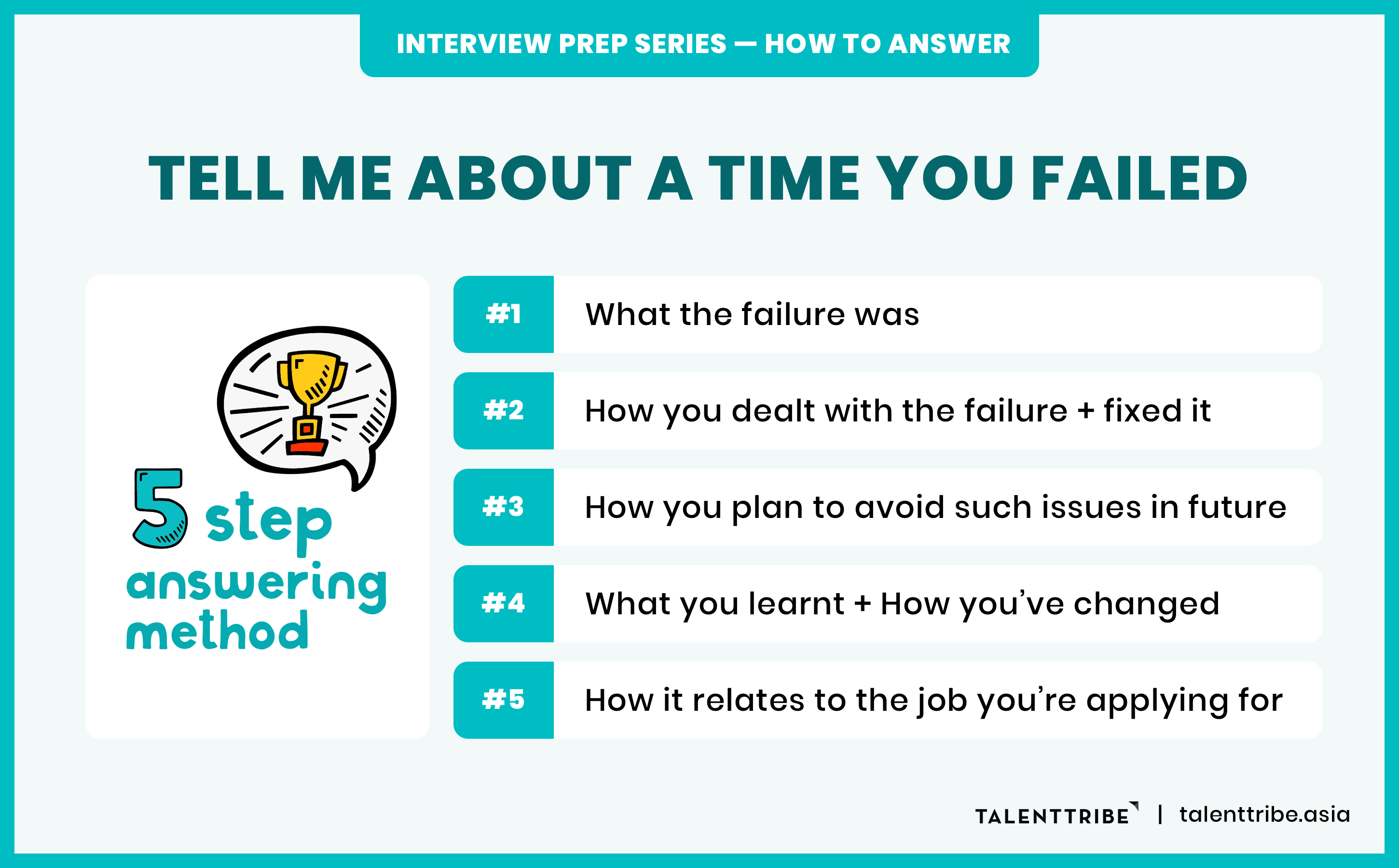
Many people fail to realise that there are many hidden questions and agenda in this one big question. Let’s break it down.
- Evaluate your self-awareness
- Whether you are able to learn from your failure
- How you’ll prevent it from happening again
- Understand you as a person
- Uncover potential red flags
Choose your failure based on the mentioned factors
The solution or lesson learnt should clearly demonstrate one or more traits that an ideal candidate should possess.
Even though you’re talking about a failure, you can potentially come off as a more suitable candidate – simply because through the failure you managed to learn important lessons along the way.
But remember: Practice selective honesty. Do not choose a failure that was easily avoidable, absolutely disastrous, or uncovers serious red flags.
What does a good answer look like?
Now that we know about the reasons interviewers ask this question, a good answer should tick all the boxes. Here’s what a good answer would encompass:
- What the failure was
- How you dealt with the failure and what was done to fix it
- How you plan to avoid such issues in the future
- What you learnt from this and how you’ve changed
- How all of it relates to the job you’re interviewing for
Remember: Keep your story concise and highlight the key takeaways. Leverage on your failure to accentuate your strengths. Don’t just tell the interviewer about the time you failed. Instead, let them know how you turned it around in your favour.
Check out model answers for this question on the full article of “How To Answer: Tell Me About A Time You Failed” .
7. Where do you see yourself in 5 years?
Hiring and training a new employee is time consuming – and very costly. Which is also why employers are usually looking to hire someone for the long run.
With this question, they are testing to see whether or not you have thought about your career, and if you are looking to commit to this role and to the company. Preferably, they are looking to weed out those that just want their “foot in the door”, or those that are already thinking about their next career adventure elsewhere.
The employer also wants to understand if the career progression and pathway they can offer you is aligned with what you are interested in.
Tips to answering “Where do you see yourself in 5 years?”
First of all, don’t attempt sensitive humour like “Hopefully, in five years I’ll be taking over your spot”.
That is a terrible idea. Don’t.
However, this is a good chance to demonstrate that you have put in serious thoughts into your future, and how the position in this company is aligned to where you want to be.
Your answer is a self-appraisal of where you are currently at, what you think you’re capable of, and where you see yourself in the future.
ALSO READ: Don't know how to answer a question during a job interview? Do this
Before you start talking about vision and goals, you want to communicate clearly that the position you are applying for is an important and vital step in your career – and you plan on excelling in the role. Once you’ve established that, it will make sense to start discussing possible upward mobility within the company, while emphasising your plans to be staying with the organisation in the long run.
It is also a great chance to show that you have done your due diligence. Bring up your research on all the related roles in the company and try to figure out what are the positions you can potentially grow into. Of course, always weave it into your answers as naturally as possible.
8. What do you think the company can do differently/better?

This is one of the most common interview questions that evaluates your creativity and observation skills. The interviewers want to see if you can identify the current problems in the company and give an actionable solution to solve it. In turn, that tells them how much you are able to contribute to the team.
Common mistakes
Saying “everything seems perfect” is simply telling the interviewers that you have no ideas – which is the last impression you’d want to leave for them.
Avoid giving answers or feedback without suggesting a solution. That is exactly what they hate.
The best way to answer this question
Be appreciative and give constructive feedback.
We cannot stress this enough. Make sure you know more as much as you can possibly can based on publicly available information (without being inside the company). Otherwise, keep researching.
Because this is the only way for you to detect a problem or spot any aspects that you think the company can improve on.
If you are applying for a Product Management position in an e-commerce company, go to their company’s website and find any bugs or inconvenience on the user’s point of view. Even better if you have purchased something from their site before. You can even figure out a way to help the company draw in more customers, and then suggest it even before being asked about it.
The best way to point out a problem is to first compliment the strengths of the company, and what they are doing right. Then, politely bring out what you feel can be better improved on.
Of course, an actionable solution needs to be delivered after illustrating the problem at hand.
Example of what’s actionable: Suggesting to the company they add more categories for their products (and what specific categories to add), to better help customers navigate to what they are looking for.
9. What do you do outside of work?
This question is a good sign. It means that you’re appreciated and the interviewer actually wants to know more about you. They are curious about your life outside of work, and whether it interferes with your ability to perform on the job.
Avoid obvious or generic answers that don’t reflect any personality. Something like “I like to travel” is a good example – everyone loves travelling and the interviewer knows that too.
While we encourage you to be as specific as possible, don’t mention anything that may affect your work. That includes answers like “After work, I like to explore new bars and meet new people. Usually after getting a couple of drinks, I will hit the club for an enjoyable night”.
How to answer this question
Your goal is to create a bond between you and the interviewer, especially to make the employer feel like you are actually someone that he or she can work with on a daily basis.
The trick to this question is to let the interviewer know what kind of person you are by sharing your hobbies with them.
- “I like to spend time with my friends and family” tells the interviewer that you value time with your loved ones, and prioritise the relationships in your life.
- “I like reading and taking online classes” shows your curious-to-learn nature and tells the interviewer that you are passionate about learning.
- “I like going to the gym and participating in sports” brings forth the active side of yourself, and the interviewer will know that you are someone that takes good care of their body.
Make sure you are well-prepared for this question.
Think: If you can’t express yourself well, it is hard to convince the interviewer that you will be able to express work-related ideas that can help the company grow.
10. Why should we hire you? Common interview questions
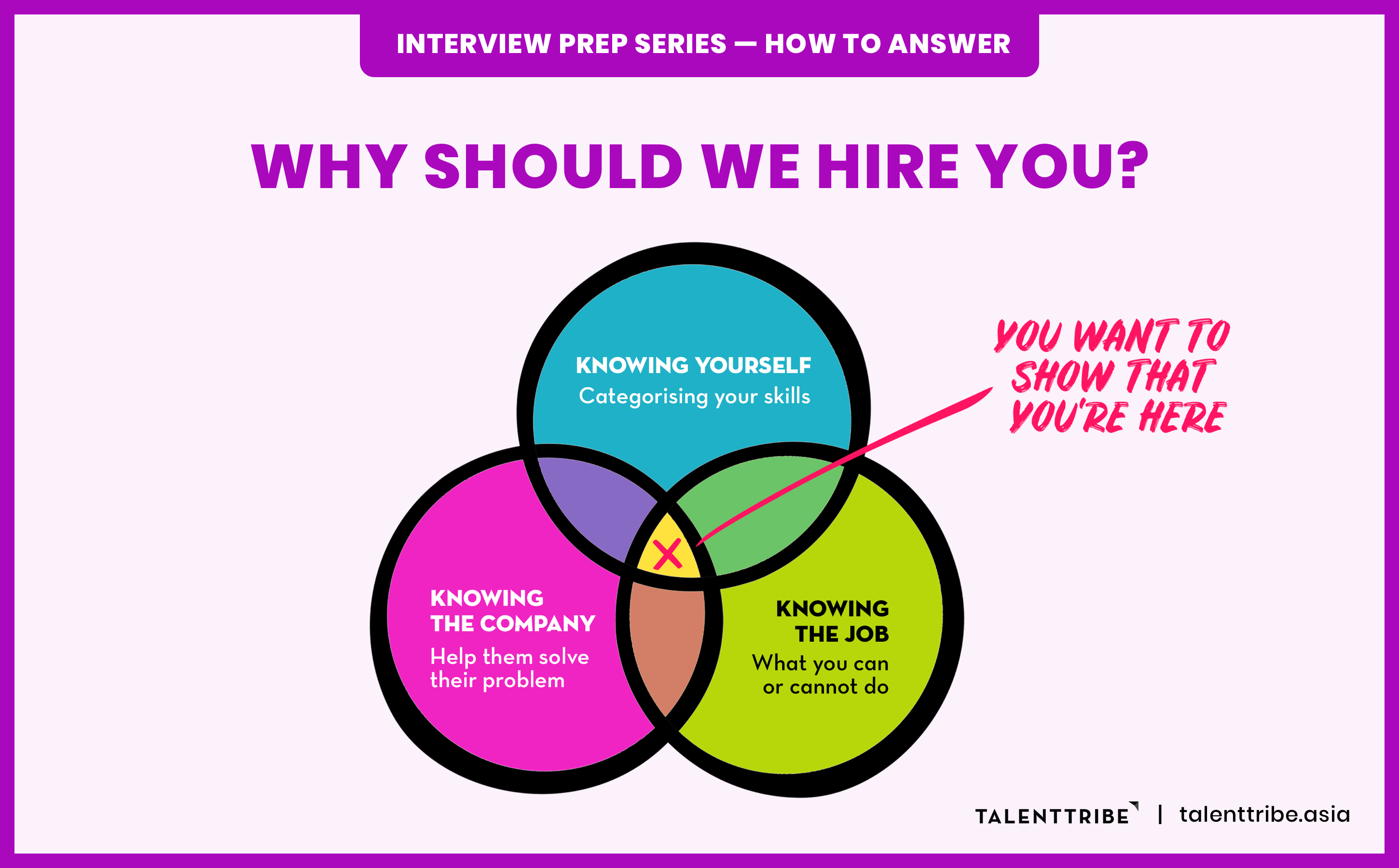
It may seem like they’re trying to put you in a tough spot by asking this question, but here’s what they are really trying to find out:
- Why you instead of others?
- Why are you the best fit?
- How can you value-add?
- Can you think on your feet?
- What’s your “Special Magic?”
You need to know yourself, the job, and the company to answer this question
- Know yourself: Categorising your skills
- Know the job: What you can and cannot do (for now)
- Know the company: What problems they need solved?
Read the full article to answer “Why should we hire you?” here.
11. What is your expected salary? Common interview questions
- To see if they can afford you
You can be the perfect candidate for the job, but that wouldn’t matter if the company does not have the budget to afford your asking salary
- To gauge if you know your worth
Someone who’s worth their salt will never discount themselves by accepting a mediocre paying job. Likewise, they will never price themselves out of a job.
Good practices when answering “What is your expected salary?”
Get a sense of salary expectations, justify your range, be transparent about competing offers, hold off answering the question first.
Simply put, do your due diligence.
Figure out the market rate for the particular job you’re applying for. Generally, salaries for similar roles and years of experience shouldn’t be too far off across different companies.
Always offer a range. It lets employers know that you are open to negotiation and are flexible with your salary.
You may feel compelled to hide it, but being open and transparent is always the better option. Employers almost always want to know what they’re up against, and it makes you look more “in demand”.
If you get asked about your expected salary in the first half of the interview, delay answering it till the end of the interview. Because a good answer wouldn’t necessarily put you in a more favourable position, but a bad one can risk cutting the interview short.
Money is a sensitive topic, and there is more behind the science of salary negotiation. Read the full article to this question here.
12. Do you have any questions for us?

This is one of the most common interview questions in Singapore. The answer to this question should never be a no. Here’s what they’re looking for:
You are what you ask
It’s their turn to convince you.
- “Tell me how I can do better “
The type of questions you ask say a lot about you. Thoughtful questions give you bonus points, and the lack thereof may suggest that you are uninterested or underprepared.
Every interview is a crucial touchpoint for interviewers to convince you to take up the offer. If you are a worthy candidate, they would want to address any concerns or doubts you may have about taking on the offer.
Tell me how I can do better
If you get the job, this may be the last interview for your in the months, or even years to come.
That is not the case for your interviewer. They interview candidates all year round and want to know how they can attract more jobseekers, get the right candidates to apply, and improve the candidate experience.
Here are some great questions you should be asking
- About the job
- About the company
- About the ideal candidate
- Uncover potential challenges
- Discuss future & immediate next steps
- And one last question to wow the interviewer…
Read the full article on how you can best answer the question, and get a list of 40 smart questions you can ask at the end of your interview.
Bear in mind that these mainly serve as a guide to point you in the right direction to ace the interview. Study how to best answer these questions, and then put in the time and effort to personalise and refine your answers.
Employment is right around the corner.
This article was first published in TalentTribe.asia .
- Entering, Transiting and Departing
Entering Singapore
To ensure a smooth journey, travellers seeking to enter Singapore should comply with the Entry and Public Health requirements listed below.
1) General Entry Requirements
To enter Singapore, travellers must meet the following immigration requirements:
i) Passport Validity
- Have minimum 6-month passport validity if you are not a Singapore passport holder
- Short term travellers holding a passport or travel document from a visa-required country/region must apply for a Visa
- Visa-required travellers can use the Visa-Free Transit Facility for stay of less than 96 hours in Singapore, if eligible
iii) Security and Immigration Processes on Arrival
- Ensure that you do not bring prohibited items into Singapore
- Familiarise yourself with immigration/customs clearance procedures , including whether you are eligible for automated clearance
- Short-Term travellers should have sufficient cash and proof of onward travel (tickets, visas), and ensure that you do not stay beyond your visit pass validity. You may retrieve your e-Pass after arrival using the e-Pass Enquiry Portal or check your visit pass validity using the visit pass validity tool .
- Those transiting/transferring through Singapore without seeking immigration clearance; and
- Singapore citizens, Permanent Residents and Long-Term Pass Holders entering via land checkpoints.
Submission of SGAC is Free and can be done via the SGAC e-Service or MyICA Mobile app . Please refer to SGAC with Electronic Health Declaration for more information.
Short Term Visitors
- Visitors who wish to stay beyond the period of stay granted can apply for a visit pass extension online using the e-Service . Applications are subject to approval.
- Travellers on short-term visit pass are also not permitted to engage in any business, professional or paid employment activities when in Singapore. Overstaying is also a punishable offence in Singapore.
2) Public Health Requirements
To avoid tests and quarantine, travellers must fulfil the public health requirements below. Travellers who cannot meet the public health requirements and refuse any test(s) and/or quarantine may be turned away from Singapore.
Produce an International Certificate of Vaccination for Yellow Fever , if you have visited any country at risk of Yellow Fever transmission in the six (6) days prior to arrival in Singapore.
Travellers must serve quarantine for six (6) days from date of departure from countries with risk of yellow fever transmission if they cannot meet the requirement. Quarantine also applies to those who are ineligible to receive the vaccination e.g., children aged one year and below and individuals with contraindications, and travellers whose yellow fever vaccination certificate has yet to become valid.
There are no longer any COVID-19 measures for travellers arriving in Singapore from 13 Feb 2023 , regardless of vaccination status or traveller profile.
Related Links
- Entry for Sea Crew/Pleasure Craft Owners
- Cargo and Postal Article Requirements
- Woodlands and Tuas Checkpoints Traffic Updates
- Requirements for Transiting in Singapore
- Taking Cash In and Out of Singapore
- Use of QR Code for Immigration Clearance at Woodlands and Tuas Checkpoints
Interview: Singapore Tourism Board CEO on Reinventing a Destination
Greg Oates, Skift
March 25th, 2015 at 8:00 AM EDT
Singapore is attracting high-end leisure travelers with a wealth of new infrastrucutre, savvy integrated digital marketing, and a growing focus on local culture and character.
Editor’s Note: Skift is publishing a series of interviews with CEOs of destination marketing organizations where we discuss the future of their organizations and the evolving strategies for attracting visitors. Read all the interviews as they come out here .

This continues our series of CEO interviews that began with online travel CEOs in Future of Travel Booking (now an e-book ), and continued with hotel CEOs in the Future of the Guest Experience series (which is also an e-book ).
In less than a decade, the Singapore Tourism Board has helped engineer an impressive turnaround of the destination’s brand in the eyes of global travelers, from what was once considered primarily a financial business hub into one of the most glamorous gateways in Southeast Asia.
The opening of the Marina Bay Sands hotel in 2010 was a turning point, with its rooftop infinity pool cantilevered 215 feet out into thin air 55 stories above the ground. Also new within the last few years, the Gardens by the Bay tropical theme park, cruise ship terminal, Formula One car race, Singapore Flyer ferris wheel, and other new luxury hotels like The Fullerton Bay Hotel and Capella Sentosa have modernized the city dramatically.
However, there’s also growing consumer interest in the more casual, local Singapore travel experience in this city presently ranked by The Economist as the world’s most expensive. Visiting chefs and travel media have drawn global attention to the amazing street food in Chinatown’s “hawker centers” and some edgy local restaurants like Open Door Policy in the emerging Tiong Bahru neighborhood. For 2015, Lonely Planet named Singapore its #1 top place to travel.
Aware of this demand for more culturally immersive travel, as well as peer-to-peer online sharing of content across all age and economic demographics, the Singapore Tourism Board launched a new website last year with a strong focus on editorial travel content and social media. The homepage at YourSingapore.com presently shows the Lonely Planet story, ten special events in March, ten things to do with kids, nine parks, some cool places to go for local food, and hundreds of web posts throughout the site.
In celebration of the city-state’s 50 years of independence this year, the tourism board also helped develop the Singapore: Inside Out global art tour. A wide range of local artists and designers are showing examples of their work in Beijing in April, London in June and New York in September to drive continued global awareness around Singapore’s evolving cultural scene.
We spoke with Lionel Yeo, CEO of Singapore Tourism Board, to dive into his strategies to grow leisure tourism arrivals and shape the Singapore brand moving into the mobile-first future.
Skift: Travelers today are relying more on their mobile phones and researching heavily before a trip. How is Singapore Tourism Board evolving to adapt to those trends?
Lionel Yeo: At the Singapore Tourism Board, we’ve definitely evolved our approach to accommodate those trends. First, when we revamped our official consumer website YourSingapore.com last year, we designed the site for mobile devices first, so it is now optimized for all screens. The desktop and mobile websites now both make use of GPS to help users navigate to the places of interest that they may wish to go to. We have also invested in mobile search, since we know that’s separate and different from desktop search, so we really are catering to travelers that are relying more and more on their mobile phones.
If you go to YourSingapore.com, you will find that our editorial approach is radically different from what it was previously, so it’s no longer the Singapore Tourism Board telling you about the destination. There’s now a very strong traveler voice. There’s a very strong third party voice that produces content, which we then feature on our site, which was one of the major parts of the revamp of the website.
On our social media channels, such as Facebook where we have almost one million fans, we are creating conversations about Singapore and encouraging people to post their travel experiences in our city, which inspires other people to post their own images and content to share with others around the world.
Skift: Do you partner with, or provide any guidance to your destination partners about digital marketing?
Yeo: Yes, I think like many other destinations we use hashtags in social media and the website as a way of extending the conversation with our partners and visitors, and we also work with our industry partners and event organizers to use the same hashtags in a consistent manner.
We take an active role to help our tourism sector companies adapt to these trends and bring them up to speed so that they can take advantage of that. For example, we’re working with TripAdvisor to conduct industry sessions where our local businesses understand how they get listed, understand how they respond to comments, and things like that to benefit their businesses.
We have a very close relationship with the industry, so we are constantly updating and briefing the hotel concierges and the people in the travel trade who have that direct relationship with consumers. We want to make sure that they are in the best position to be the trusted source of advice for visitors once they arrive in Singapore.
Skift: Is your consumer profile evolving in any way?
Yeo: Yes, I would say it’s changing and evolving constantly. Essentially, where they’re coming from, the way in which they are traveling, and the way in which they’re consuming media, these are pretty big things that we watch.
In terms of where they’re coming from, we welcomed more than 15 million visitors throughout 2014. More than 75% of that 15 million come from the Asian region, and that’s quite different if you compare to the ’80s and ’90s when we generally had a higher percentage of long-haul traffic. So that’s a function, I suppose, of the growth of Asia, a function of the fact that in Asian economies there are vast numbers of people entering the middle classes and therefore able to travel internationally. And when Asians start to travel, Singapore is at the top of their list.
Obviously the way people are traveling is changing as well. I would attribute that in a large part to the rise of low cost carriers in our part of the world. Travel is really a lot more affordable and people see international destinations as much more within reach, and they can travel more frequently. Someone who lives in Jakarta or Surabaya can imagine visiting Singapore not just once a year or once in two years, but several times a year because of low cost carriers.
Skift: Are you developing your marketing strategies and platforms facing the North American market in any new ways?
Yeo: Yes, in some circles, people call it native advertising. We’re finding that it’s actually really important for us to be on platforms where our target audience are spending their time, whether it’s a magazine or a particular section of a newspaper. Then we create strong content with content partners that will not look out of date on those platforms, and that will be able to reach out to our target audience and resonate with them. So if we’re working with titles like Conde Nast Traveler in North America for example, it is about creating content that belongs and looks entirely natural in those platforms.
At the same time, I think the internet is the top source of information for travelers. Digital is very much a priority for us, but we always look at it in an integrative fashion. And while we continue to use traditional channels such as print, we make sure that those campaigns are integrated with online and social media platforms.
Skift: How is the Singapore travel brand evolving, in general, that drives some of those editorial marketing decisions?
Yeo: We have been thinking about how we need to add more depth and layers to the global perception of Singapore as a city. I think we are quite well known as a business destination. We are quite well known as a financial services hub. We’ve got a great airport. We’re also quite well known for having a number of large scale attractions and events.
One of the ways in which we are looking to complement that brand perception is to make sure that the local and authentic character of the city comes up as well, when we present Singapore to an international audience. This is not just a global city. We are a global city with very strong local characteristics and a very strong local character. There are creative people in Singapore doing very interesting things, and we’re trying to see how we can bring them up more in our international promotion efforts.
Skift: There is a lot of consumer interest in that, especially regarding Singapore. How else are you getting that across to Western markets?
Yeo: On a number of levels. For example when we engage with members of the media and they have a chance to visit Singapore, we make it a point to show them both the global part of the city, but as well, the authentic and the more local parts. We find that has become more and more of interest in the past one or two years in the media, like The New York Times talking about a traditional coffee shop in Singapore.
I suppose they do that because it’s something that readers find interesting, and so they write about some of these more local parts. When food magazines write about the culinary scene in Singapore, they not only talk about the high-end, world class restaurants that are available here, but they also talk about the street food, which is of very high quality and very affordable. We are seeing increasing interest in profiling both aspects of Singapore, the global and the local.
Skift: Was the new Singapore: Inside Out project also designed to help spread awareness of Singaporean culture?
Yeo: Yes, absolutely. Singapore: Inside Out is a true showcase of our creative talents in fields as diverse as digital arts, dance, music, textiles, graphic design and literature, and some of the work that they have produced. I think it’s really well designed to show a more, if you like, creative side of Singapore, and that’s a project that will be coming to a place near you in New York this fall.
You see this new spark of creativity in many different areas. You see that in music for example. There are a lot of talented Singaporeans showing a lot of potential and promise in music. We see some very interesting fashion designers creating beautiful clothes for Singapore, as well as international markets. We’re seeing the graphic designers and visual artists doing very well in art shows around the world.
So yes, I think there’s a sense that there is this wave of creative energy that’s sweeping over Singapore. I should mention, on the film side, we were very proud to have one of our filmmakers, Anthony Chen, win a very prestigious award at the Cannes Film Festival in 2013. We are very thrilled at that. There’s a whole generation of new filmmakers here that I think you’ll be hearing more of soon.
Skift: Besides marketing the destination brand, how do you see the role of destination marketing organizations (DMOs) evolving in the next five to ten years?
Yeo: The role of the Singapore Tourism Board actually goes quite far beyond that of a traditional destination marketing organization. We have a very clear mandate to also champion industry development, as well as product development and events.
When we hold the Women’s Tennis Association Final, which is the season finale for women’s tennis, that’s something that we are heavily involved in, in terms of the execution of the event once we have won the bid. Likewise for the Formula One race, the Singapore Tourism Board is intimately involved in that mega-event.
We are not just the marketer for the destination. We are very much involved in product development, in industry development, and as well in local engagement, and making sure that local people are proud of what we’re doing in terms of tourism development.
Skift: Are you concerned about the growing number of travelers booking sharing accommodations such as Airbnb, especially because they’re not paying taxes?
Yeo: I think in our context, unlike some DMOs, we do not rely on taxes that travelers pay for our revenue. We’re not funded by taxes from hotels for example. Our situation is a little bit different. I think in Singapore the whole sharing economy in relation to tourism and travel touches really more on the regulatory issue around the use of residential properties, as is the case in many cities around the world.
Skift: So your DMO is funded entirely by the government?
Yeo: Yes, almost entirely. I would say 95% of our operating revenue is from the government. I think the Singapore government takes a very strategic view of tourism, not only to really look at the direct economic benefits that come with tourism development, we are also quite aware of the indirect benefits for the city in terms of the vibrancy, in terms of the attractiveness of the city.
Just now we were talking about bringing big events, like big sporting events or other kinds of leisure events into the city, so I think these are indirect benefits because the people who live here benefit as well. At the same time, by ensuring that we continue to keep Singapore an attractive city, we are helping other economic agencies do their job, because we’re helping Singapore attract stronger investment for talent and for business.
Oftentimes when our colleagues in the economic development board go around the world to make their pitch for capital and businesses to come to Singapore, we like to think that we make their job easier when we help create a livable and vibrant city, which people want to come to and possibly even reside.
Skift: If the government gave you ten times more funding, what would you do with those funds?
Yeo: It would allow me, from a marketing point of view, to cover more markets than we already do. There are some markets that we would love to explore a little bit more. Even within some of our primary markets like Indonesia and China, there are secondary or even third-tier cities that we could go into. And in a region like Europe, for example, there are Scandinavian countries that I think offer interesting emerging markets for Singapore.
I think the other area is more investment in industry capabilities. We see it as very much our role to make sure that the private sector in Singapore continues to innovate, continues to develop capabilities that allow them to be more productive, more efficient, and more creative in terms of the experience that they can create for visitors.
So we would really like to invest more in our industry capabilities. I think finally, a larger budget would allow us to look at more investments in business tourism, whether it’s infrastructure or in terms of getting more major business events to come to Singapore.
Greg Oates covers hospitality and tourism development. Email him at [email protected] .
The Daily Newsletter
Our daily coverage of the global travel industry. Written by editors and analysts from across Skift’s brands.
Have a confidential tip for Skift? Get in touch
Tags: ceo interviews , fodm , singapore , tourism
Photo credit: Lionel Yeo, CEO of Singapore Tourism Board, is stewarding the city-state through the digital era. Singapore Tourism Board

An official website of the United States government
Here’s how you know

Official websites use .gov A .gov website belongs to an official government organization in the United States.
Secure .gov websites use HTTPS A lock ( Lock A locked padlock ) or https:// means you’ve safely connected to the .gov website. Share sensitive information only on official, secure websites.

- Trusted Traveler Programs
- Global Entry
- International Arrangements
Global Entry for Singapore Citizens
How to apply for global entry.
Citizens of Singapore are eligible for Global Entry. Applications must be submitted through CBP’s Trusted Traveler Programs (TTP) website. The non-refundable application fee for a five-year Global Entry membership is $100 and applications must be made online. Once the application is approved, a CBP officer will conduct a scheduled interview with the applicant and then make a final eligibility determination.
Application Process
- Apply Online with CBP: Complete a TTP online application and pay the $100 non-refundable application fee.
- Schedule an Interview: Once your application is reviewed, you will receive a message in your TTP account instructing you to schedule an interview at one of the Global Entry Enrollment Centers . If you are unable to schedule an in-person interview, you may opt to use the Enrollment On Arrival (EoA) option that is immediately available while entering the U.S. from an international country. No appointment is required for the EoA process. Additional information regarding EoA is available on the Enrollment on Arrival website.
- Interview Determines Your Eligibility: A U.S. Customs Border Protection officer will ask you questions, take your photo, and collect biometric information, for example, scan your fingerprints.
- Provide Identification: Bring your valid passport(s) and one other form of identification, such as a driver's license or ID card to the interview. If you are a lawful permanent resident, you must present your permanent resident card.
Other Benefits
Once a citizen of Singapore is enrolled in Global Entry, he/she will also be eligible to participate in TSA Precheck. Visit the TSA Precheck program website for more information.
Travel Requirements
All Singaporean Global Entry members must have a valid passport and Electronic System for Travel Authorization (ESTA) or a valid visa. Global Entry members who are not U.S. citizens or U.S. lawful permanent residents must maintain updated visa information with CBP. If a Global Entry member obtains a new visa, or obtains a new petition for a work visa, the member must notify CBP in-person at a Global Entry enrollment center. A member must visit an enrollment center to have CBP add visa and/or update visa information. If the visa information is incomplete or not properly updated with CBP, the Global Entry kiosk may incorrectly calculate the member’s Class of admission and admission date. A member must visit an enrollment center in-person to add or update visa information.
- Deutschland
You have exceeded the number of Favourites. Please remove some of them to add more.
Create your own Singapore guide with up to 12 of your Favourites.
As you browse through our site, add pages to your Favourites by clicking on the star button within every article.
To access and edit all your Favourites, click on the star button at the top right corner of every page throughout our site.
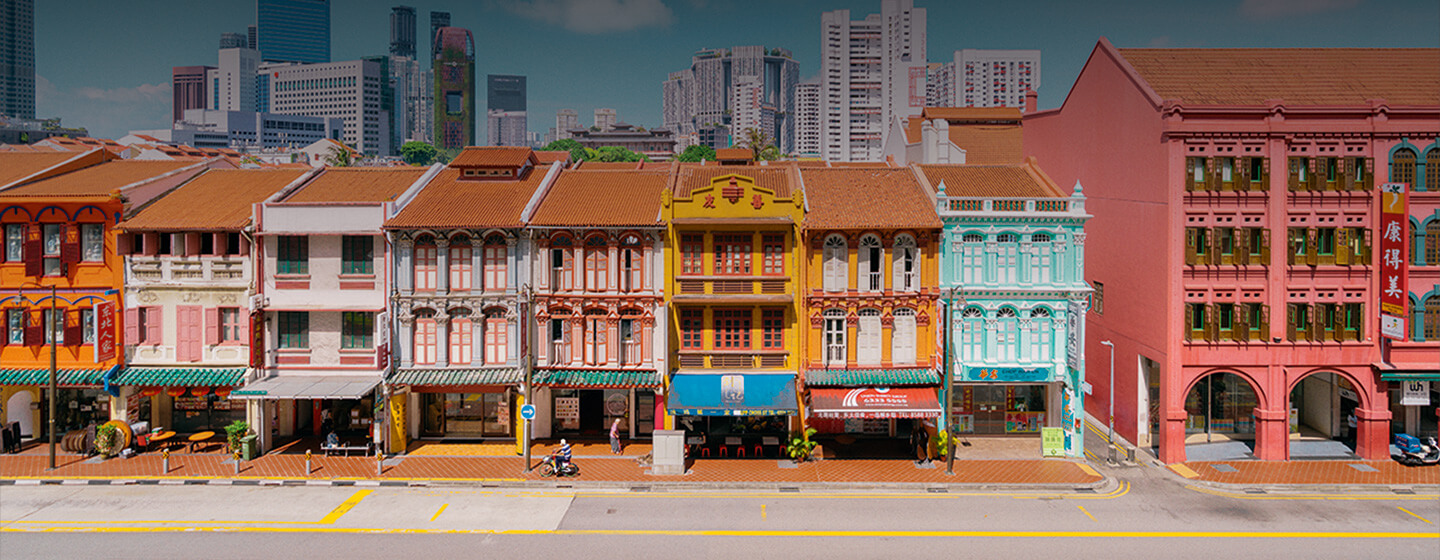
Where the ordinary is made extraordinary.

MADE IN SINGAPORE
Festival & Events
Visit Singapore

Holidays. Made in Singapore.
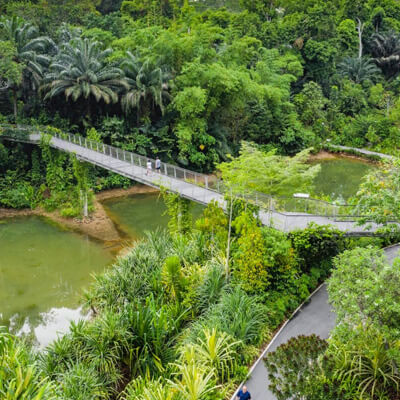
Discover the city’s natural beauty
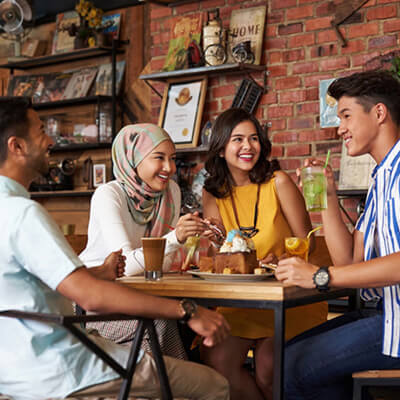

Experience the richness of our culture and heritage
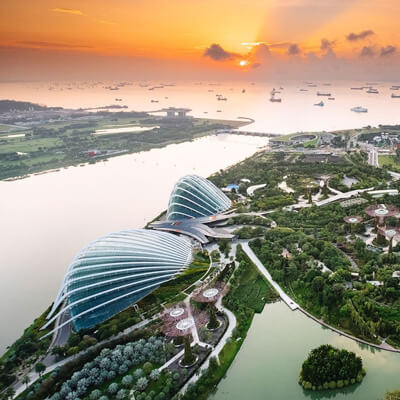
Explore Singapore’s unexpected charms
Vibrant neighbourhoods.
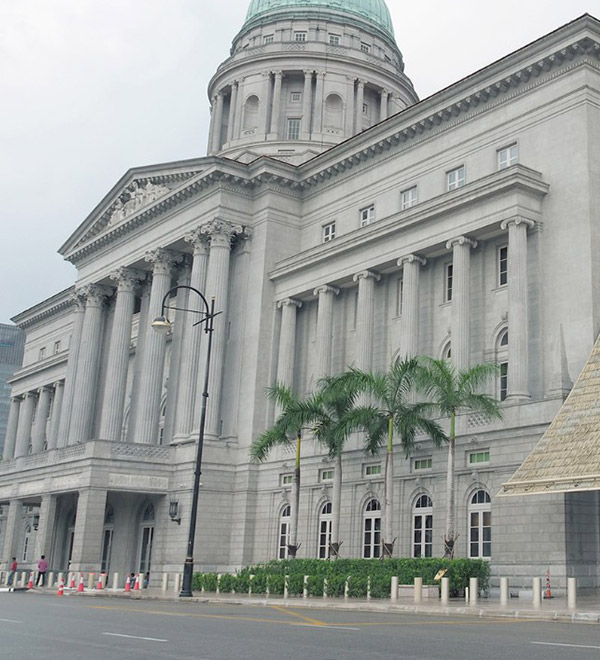
Civic District
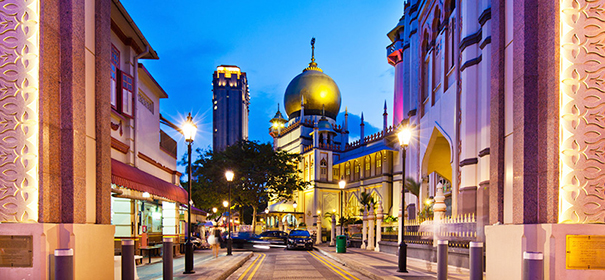
Kampong Gelam
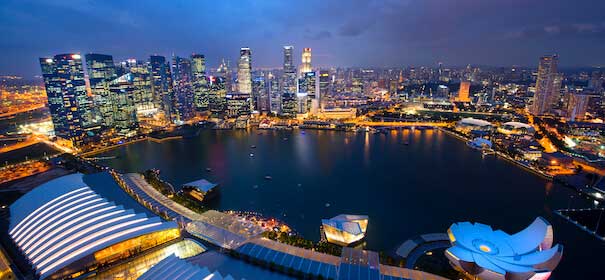
Popular Places

Gardens by the Bay
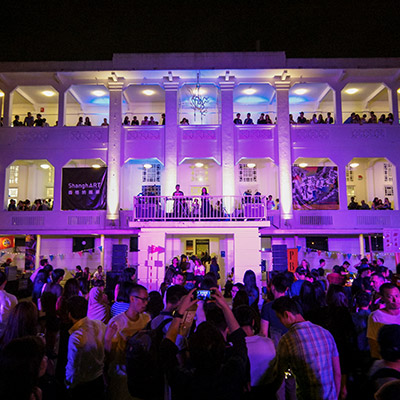
Gillman Barracks
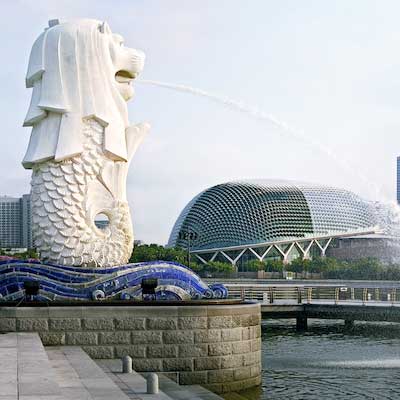
Merlion Park
Food highlights.
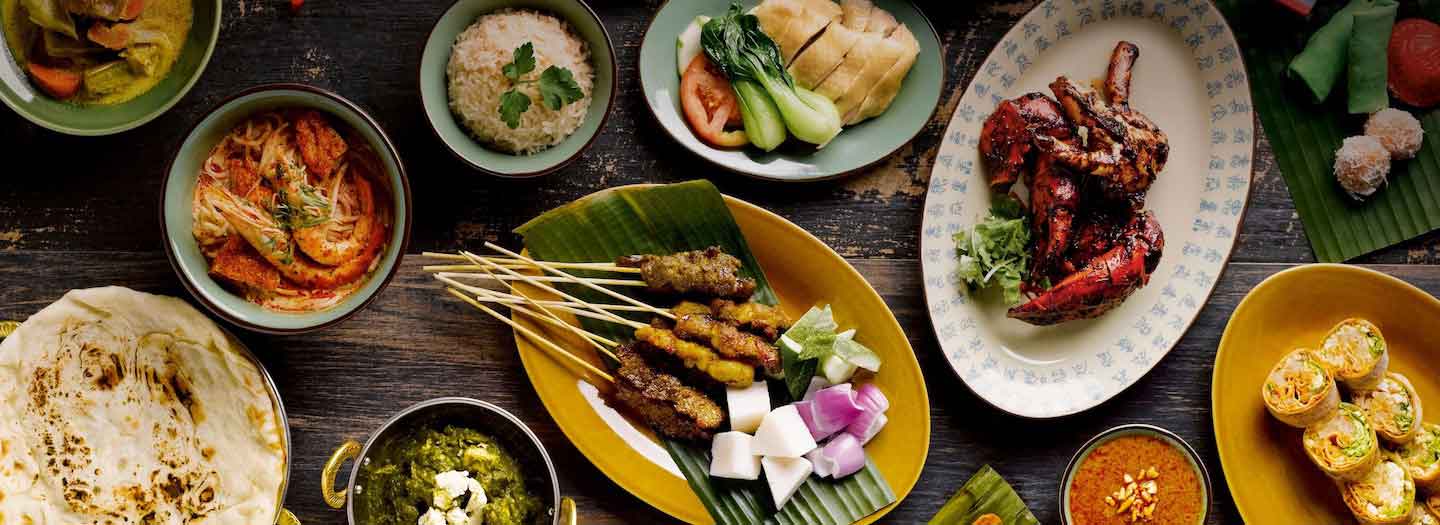
How to feed your food obsession
things to do and see
Chinese cuisines in Singapore
Singapore is steeped in culinary heritage, brought to our island from all around the world, including various regions of China.
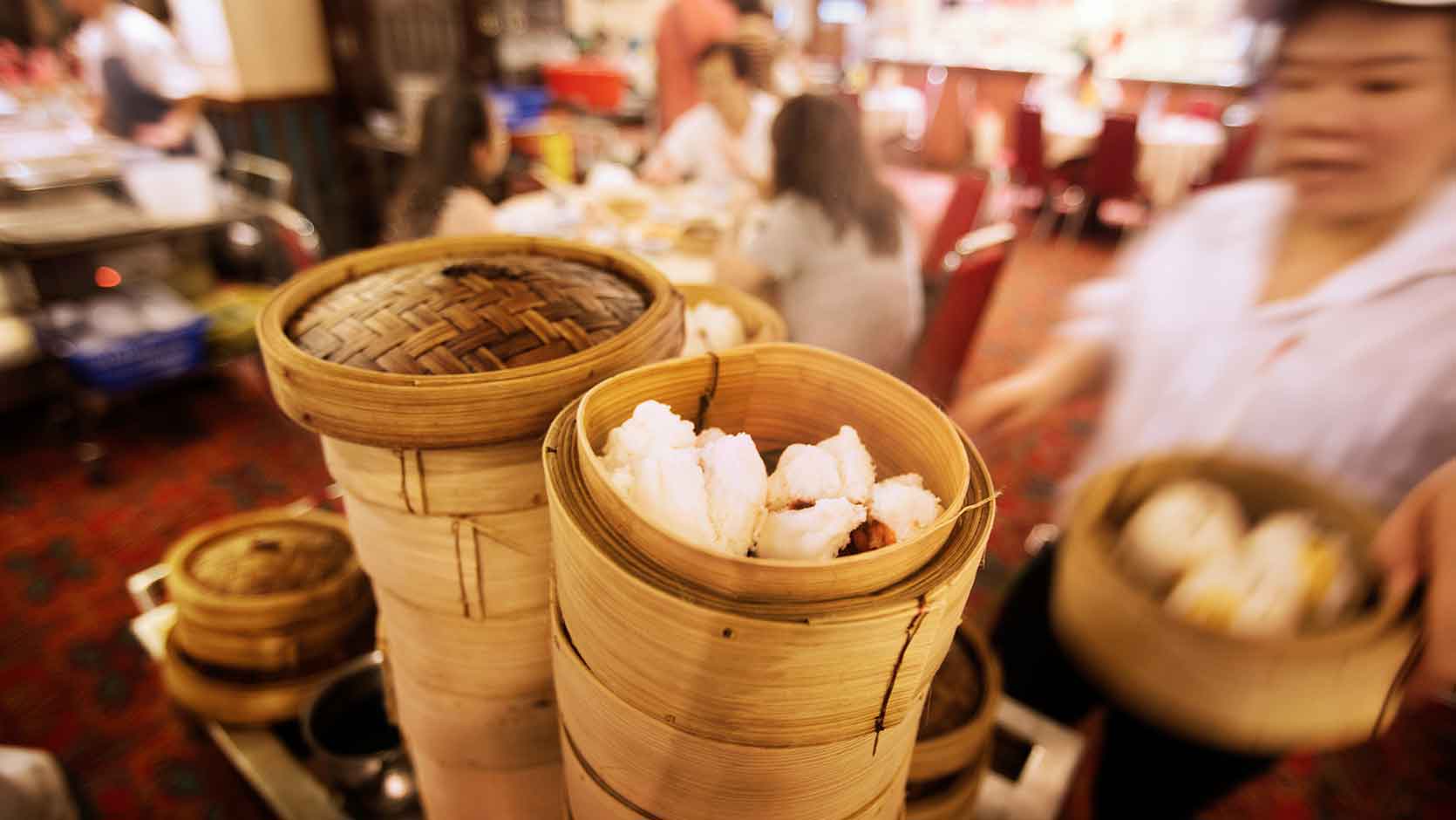
Best Chinatown restaurants in Singapore
New flavours and exciting culinary experiences are waiting to be uncovered in the cultural district of Chinatown.
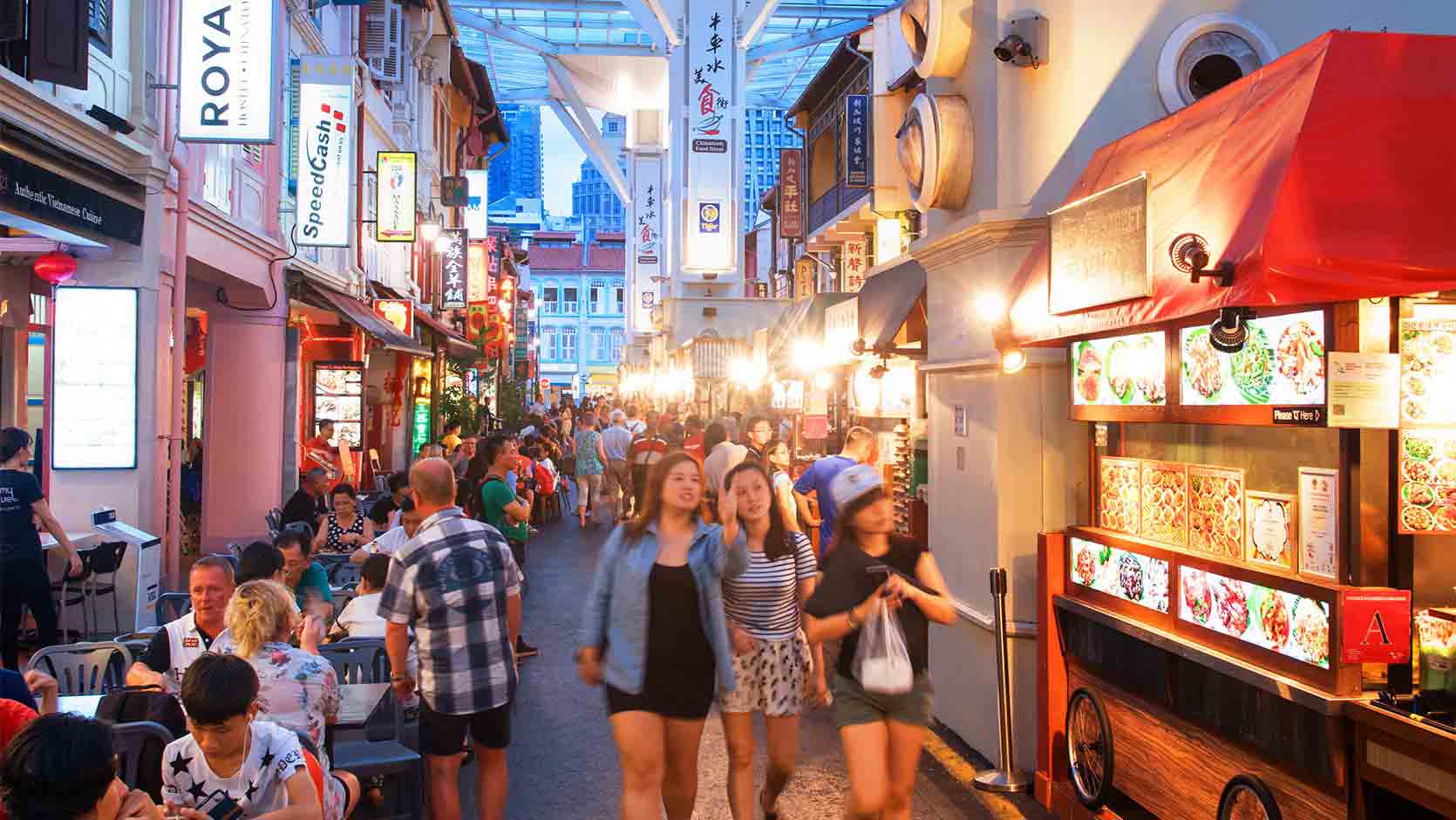
Ultimate Cooking Class for Foodies
Turn up the heat and unleash your inner chef with these in-depth cooking classes in Singapore.
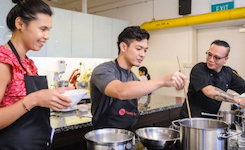
Go Shopping

Discover Singaporean Brands. Made With Passion
Shopping on a budget in singapore.
Love shopping but don’t want to splurge unnecessarily? Budget-friendly shopping in Singapore is possible—just check out these places.

Retail therapy at Changi Airport
Spoil yourself with the abundance of shopping options available at Changi Airport.
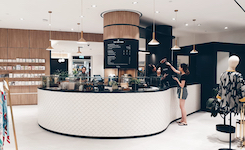
Singapore with Retail Therapy: Orchard Road
From bespoke high-street to bargain buys, Orchard Road has something for everyone. Discover a shopping experience that matches every taste.
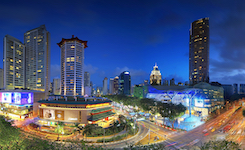
Traveller Essentials
Travel Requirements for Tourists to Singapore
Getting to Singapore
Getting Around Singapore
About Singapore
Featured Itineraries
- Enjoy Singapore in 7 days
- A 2-day guide for esports enthusiasts
- Decades in a day—a guide to SG
Walking Trails
- Hunting for inspiration at Tiong Bahru
- Discover the charms of Little India
- In The Neighbourhood: Chinatown
Passion Made Possible
Singapore is more than its tourist attractions. It’s constantly evolving, reinventing, and reimagining itself, with people who are passionate about creating new possibilities. It’s not just about what you can do here, it’s about what you can be.

Government agencies communicate via .gov.sg websites (e.g. go.gov.sg/open) . Trusted website s
Household Travel Survey (HTS)
The Land Transport Authority (LTA) conducts the Household Travel Survey (HTS) to gather valuable insights into travel behaviour and plan for Singapore’s future transportation needs. Every four to five years, this large-scale survey reaches approximately 60,000 respondents across the island. Your participation in the HTS will help shape the future of transportation in Singapore as an inclusive and efficient land transport system. The HTS collects information on various aspects of travel, including how respondents commute to work, school, and town centres. We also study the evolving household and travel characteristics of Singaporeans, such as how many respondents drive, have more than one car, whether they use the MRT and/or buses more frequently for their daily journeys, etc. LTA has achieved the target of 10,000 survey responses for 2023. We would like to thank the public for their participation. All collected survey responses, whether digitally or by face-to-face interviews, will be securely stored in adherence to strict data protection standards.

This quick tour will bring you through the key enhancements.
Use the links at the top navigation bar to help you find what you are looking for

Jump straight into the popular pages that
are most relevant to you

Taking a bus, train, or cycling to your
destination? Plan your routes and check
the fares using these tools!

Our latest featured projects are just a click away!

Start exploring
LTA.GOV.SG now!
Singapore (Singapore, U.S. Embassy)
Global entry interview guide.
Singapore, SG
This guide will help you complete your Global Entry Interview at Singapore (Singapore, U.S. Embassy) . We also have guides for other Global Entry Interview Locations .
The next available Global Entry interview appointment at Singapore (Singapore, U.S. Embassy) is in 63 days.
We can help you get an earlier appointment!
Last Updated: about 5 hours ago
Apply for Global Entry
The first step to faster international travel is applying for the Global Entry program and getting conditionally approved.
- Click the below button if you have not yet applied. It will open in a new browser tab.
Schedule Your Interview at Singapore (Singapore, U.S. Embassy)
Congratulations! You've been conditionally approved for the Global Entry program. The next step is scheduling an in-person interview appointment at Singapore (Singapore, U.S. Embassy) .
- Click the below button. It will open in a new browser tab.
- Scroll down and click 'Other Countries'.
- Click Singapore (Singapore, U.S. Embassy)
- Click 'Choose This Location'. This will take you to a new page showing available interview appointment times.
Getting an Earlier Appointment at Singapore (Singapore, U.S. Embassy)
Sometimes Singapore (Singapore, U.S. Embassy) shows "No appointments available for this location" or the next available appointment might be weeks or months away. What can you do?
People cancel their appointments and new interview times open up all the time. You can continue to check the web site for availability or you can let us do it for you. We'll send you an email alert as soon as we see an earlier appointment. All you have to do is click the link in the email and book your appointment.
U.S. Embassy 27 Napier Road Singapore, 258508 Phone: 6-476-9001 Directions: U.S. Embassy Singapore is not an official Enrollment center. We provide GE Interviews at the Embassy as an accommodation, subject to terms and conditions below. Notes: NO WALK-INS ALLOWED. APPOINTMENTS ARE REQUIRED. Children under 18 must be accompanied by a guardian.
- Destinations
- Travel Tips
- Travel With Us
- Paid Travel Internship
- TTIFridays (Community Events)
- SG Travel Insider (Telegram Grp)
The Travel Intern

It’s so clean — is what most people say when we tell them we’re from Singapore. But more than just its clean streets, Singapore is a melting pot of cultures, home to residents of all races, and a plethora of great food choices. Discover more of Singapore — even places most locals don’t know of down below!
VIDEO GUIDES

TRAVEL INFORMATION
Country Code : +65 Time Zone : GMT +8 hours Peak Travel Period : All year Four Seasons : No Currency : Singapore Dollar, SGD (S$)

USEFUL WORDS
There are four official languages, English is the main language used as in school and work, and is the lingua franca for Singaporeans of different ethnic backgrounds. Singlish, however, is what we all Singaporeans identify with and truly love to bits.
- Hello/Greetings – Hello!
- Thank you – Eh thanks ah
- Please – Please leh
- Do you speak english – Can speak English?
- Delicious – Shiok sia
- Sorry – Eh sori ah
- OMG – Alamak
- I don’t understand – Catch no ball
TOP 3 THINGS TO DO IN SINGAPORE
Enter promo code <THETRAVELINTERN> on Klook for a 5% discount! T&Cs apply.
THINGS TO DO IN SINGAPORE

Tulipmania is Back at Gardens by the Bay from 29 April...

Westies: Here’s Where to Spot the Best Chingay Performances in the...

Harry Potter Experience in Singapore Starting 3 Feb 2024 — Here’s...

5 IG-worthy Spots to Check Out in Changi Airport’s Newly Revamped...
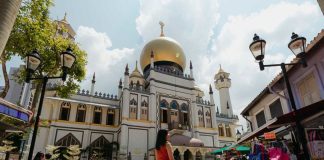
The Ultimate 5-Day Singapore Itinerary Curated by Locals — from Iconic...

7 Actually Interesting Things to Do in Singapore for Overseas Friends...
Accommodation in singapore.

11 Best Hotels for a Unique Staycation in Singapore — Glamping,...
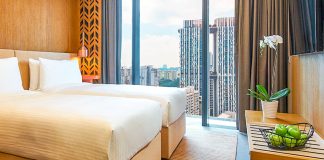
Singapore Staycation Ideas — 13 Hotels Under S$99/Pax That Are Trendy...

10 Cheap and Affordable Hostels in Singapore Under S$30

Singapore Staycation 2021 — 16 Underrated Hotels to Spend Your S$100...

12 Hotels in Singapore Worth Splurging on Based on Your New...

SingapoRediscovers Vouchers Ultimate Guide — maximise your S$100 incl. Pro-tips and...
Discover singapore.

34 New Deals and Attractions in Singapore this May 2024

7 Boutique Hotels in Singapore For an “Out of the Country”...
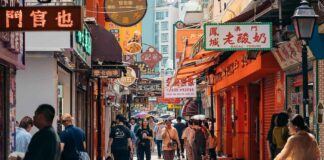
Experience Macao Singapore Roadshow: Get Exclusive Deals, Experience the Macau Grand...

Ang Mo Kio Neighbourhood Guide — Things to Do in Singapore...

The Best 5G eSIM/SIM in Singapore for Tourists

Staycations in Singapore: 12 Ideas For an Unconventional Getaway

Air Taxi Flights in Singapore by 2024?

What’s New on Genting Dream — Resorts World Cruises Review

No More VTL Flights From 1 April 2022 — 5 Things...
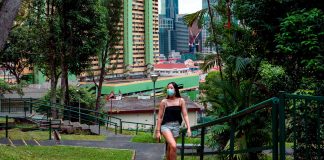
10 Hidden Gems You Never Knew Existed Around Singapore Neighbourhoods

Miles Hacking: 10 Things to do in Singapore that Can Earn...

Dazzling Drone Display Spotted at Sentosa on 23 Dec — Get...

- Terms Of Use
- Privacy Policy
Government agencies communicate via .gov.sg websites (e.g. go.gov.sg/open). Trusted websites Trusted websites
Look for a lock ( ) or https:// as an added precaution. Share sensitive information only on official, secure websites.
9 minute read
7 Common Job Interview Questions You Must Prepare For
Here are some of the most frequently asked interview questions and tips on how to answer them..

So, you finally got an interview letter from your dream company — they arranged a chat next week to learn more about you and how you can contribute to the company. All you need to do is be yourself and answer the questions posed to you as honestly as you can, right?
Alas, that is only the tip of the iceberg.
Nailing a job interview takes more than just some sincere and honest answers about how suitable you are for the role, and why you should be given the position. This means lots of preparation is needed so that you can land your dream job.
Why is job interview preparation important?
Preparation for the first interview is important because an interview is a perfect time to set an excellent first impression on your potential employers among other qualified candidates. It’s the most impactful part of the hiring process.
It showcases who you are as an individual and gives the interviewers some insight into how you can contribute to the company. Moreover, it gives the interviewers a brief indication about whether or not you’ll be able to fit in with their team and company values.
It can be easy to get overwhelmed and find yourself at a loss for words at job interviews, whether it is your first or your 10th. You are not alone.
Thankfully, practice makes perfect. Coming up with sample answers for common interview questions can make a world of difference! However, it is important that you do enough research and thinking to ensure that you do not use one-size-fits-all model answers that the interviewers have heard before.
In this article, we have compiled a list of the common interview questions in Singapore identified by HR experts for you to prepare for ahead of your next job interview. These are not model sample answers you can find anywhere on the internet because we’ll help you add your own spin.
We show you how to prep for an interview with tips and tricks from our experts. Learn to craft the best answers, with a touch of personality and professionalism, to make you stand out from the rest of the qualified candidates for all the right reasons.
However, be sure to do your own research about the company and what the job demands. This way, you can feel more prepared for the interview and impress the hiring manager.
Find out how WSG’s Career Matching Services can help you in your career journey.
1. “Tell me about yourself.”
This may seem like an innocuous question. However, these types of interview questions are a good chance for you to show your interviewer that you are the perfect fit for the job. Typically, this is one of the first questions every interviewer will ask.
What to say?
Tell your interviewer more about your academic history, employment information, including what you do in your current company, and interests.
For instance, if you are applying for a job in the fashion industry, give a background about how you first found your passion for fashion, and any work experience that is related to this industry.
Talk about your involvement in the industry and mention how familiar you are with the industrial lingo and jargon. This way, your interviewers will get a sense of how informed you are about the industry.
Do not limit yourself to just talking about your work experience and qualifications — your interviewer can easily find all that information from your Curriculum Vitae (CV) . Instead, try to include examples of what you enjoy doing outside of work, but make sure these examples are relevant to the job you are applying for.
Suppose you are applying for a job in the technology industry. It may be helpful for you to talk about how you enjoy keeping up-to-date with the latest tech gadgets, and the various programming projects you take part in during your free time.
You can also cite the latest news you read on tech blogs and your comments and opinions about them. Try to get involved in the latest happenings to exhibit your proactiveness and interest in the field.
We cover sample answers to “Tell Me About Yourself” in this article .
What not to say?
Be careful not to waffle and, instead, align your answer to the position you are applying for as many as possible.
Also, avoid disclosing personal and private information that is irrelevant to the company and the role you are applying for.
Refrain from regaling your interviewer with tales of your primary school experience or your hometown, as these accounts do not add value to your resume. It might even bore the interviewer!
2. “What are your strengths/weaknesses?”
This is where research about the company and the job description comes in. You also want to think about your previous roles, a challenging situation or two you faced and the soft skills you have, for instance.
Begin by understanding the type of characteristics that would best suit the position you are applying for and pick two or three that relate to you.
If you are applying for a job as a business analyst, be sure to let your interviewer know that you can bring to the table critical thinking skills and problem-solving capability while being detail-oriented. Good communication skills will be important too.
Use evidence from past experiences to back up your strengths. Share how your skills as a team player helped you lead a team to victory and success in the past, or how you overcame a difficult situation with your skillsets.
When talking about your weaknesses, be as honest as possible and demonstrate self-awareness and a desire to improve yourself. Here’s how to positively answer common job interview questions about your weaknesses .
Make sure that you do not over-sell your strengths. It could come off as overconfident and boastful.
Bear in mind that your weakness should not be something that is critical to the job you are applying for. For example, if you are applying for a job as a project manager, “multitasking” should not be one of your weaknesses.
Avoid coming off as desperate and over-apologetic, as it might make you look unprofessional and difficult to work with.
Receive more career tips directly in your mailbox by signing up for our e-newsletters today.

3. “What attracted you to our company?”
There aren’t any wrong answers to this common question, but you want to make it a compelling one. So, being near home or on your bus route won’t make the cut.
Do your research about the company, focusing on things such as its working culture and its internal offerings like training programmes, opportunities for rotation, etc.
You can then show your interviewer how well-prepared you are by demonstrating knowledge about the company, and how its corporate values and interests align with yours.
For example, if the company has a reputation for technological innovation, you can talk about how you have been keeping up with news about its various projects. You can also dive into how you would like to work at a company that allows you to be at the forefront of technology, by creating industry-leading solutions.
While you do not have to come up with a very specific career path, it would be helpful for you to set realistic goals to show your interviewer that you are driven, ambitious and interested in a long-term career in this company.
We understand you may have salary expectations, but sharing that you know the company will pay candidates higher may not go down well with the hiring manager.
You want to position yourself as someone who is willing to learn and contribute, and not simply after good compensation.
4. “What are your goals for the next five years?”
The ideal candidate knows what he or she wants and can set realistic expectations to achieve goals.
While you do not have to come up with a very specific career path, it would be helpful for you to set realistic SMART goals to show your interviewer that you are driven, ambitious, and interested in a long-term career in this company.
This would be beneficial to your long-term career plans, as well.
For instance, you could say that you hope to gain more expertise in your industry, and perhaps take on more managerial responsibilities within the next five years if you are a fresh graduate. This would illustrate your humility and willingness to learn.
In addition, it gives your employers an indication of how long you will be willing to commit to them.
These sample answers to where do you see yourself in five years can inspire you.
Outlining your goals according to salary requirements does not convince the hiring manager that you’re fit for the role. You will be compensated more as you gain experience, so avoid topics on salaries.
You may, however, briefly indicate that you look forward to a higher salary range while you meet your goals.
Like what you’re reading? Join us on Telegram to get real-time updates on job vacancies, upcoming career events, career-related tips and more!

5. “What business challenge have you faced and how did you overcome it?”
A favourite interview question, interviewers are basically looking at how well you can solve problems relevant to the company.
Pick a business challenge that you were able to overcome using a skill that best relates to the job you are applying for.
If you had managed to improve the workflow in your previous company to increase productivity, explain to your interviewer the approach you took, including your thought process and actions. Try to incorporate as many problem-solving skills as possible.
Even if you were not able to fully resolve the issue, tell your employers what valuable lessons the experience has taught you.
Also, give the interviewers some insight into how you took those lessons and applied them to other circumstances. In doing so, you showcase your sincerity, adaptability, and also willingness to learn from hardship.
Employers love candidates who have a Never-Say-Die attitude — so be sure to exhibit those traits!
Avoid claiming you never had a business challenge, to begin with. Even if the situation you faced was small, tweak it to show the competencies necessary for the role.
6. “What can you contribute to the job and our company?”
Some may find this humble brag, but it really is your final pitch to the interviewers. Be smart about it!
Examples of previous accomplishments would be a great way to demonstrate what you could possibly achieve in this job, and add value to this company in the future. Try to align your contributions with the demands and expectations of the job description.
Statistics may come in handy here. For instance, you could let your interviewer know that you were able to increase your company’s sales by 50%, even in the midst of the Singapore recession in 2009.
Employees who are over 40 have a wealth of experience that is not just confined to paper qualifications. Highlight some traits like leadership skills that will make you an asset to the company.
Do not brag about your achievements, as this might come off as arrogant and egotistical. While there is nothing wrong with mentioning how you have helped the company, tread carefully and ensure that you do not blow your own trumpet too much.
Nobody likes working with a conceited fellow. Thus, be sure that you do not let your head swell in this aspect.
Attend walk-in interviews, virtual career fairs, workshops and more! Explore Career GRIT and find events and other resources best suited to your career journey. Check it out now.
7. “Do you have any questions?”
Interviews are not just a one-way street; you are there to learn more about the company as much as the interviewer is there to find out more about you!
Take advantage of this opportunity to ask your interviewer thoughtful questions, such as how this position has evolved (if it is not a new position) or how the company defines success. Also, find out more about career progression, company culture, work-life balance as well as salary.
Having no questions at all might be a bad sign as it implies that you are not interested to learn more about the company. Be sure to ask intelligent questions that can help you obtain a better understanding of the corporation and business culture.
While there are no one-size-fits-all answers that can help you ace every interview, preparation and research will always come in handy. At the end of the day, being the truest version of yourself with professionalism and grace is the way to go in any job application process.
Make sure you wear the best traits on your sleeve but also be friendly, humble, and engaging. The next step of interview preparation is choosing the most professional attire that makes you look and feel confident.
Related topics:

Employee Engagement Strategies to Motivate Your Staff
4 minute read

Data Analytics: What’s the Job Market Now, Who’s Hiring, and is it the Career for You
6 minute read
Quick share
Enjoyed reading this? View other related articles below:
Tips for new entrants joining the workforce

First Time Looking for Jobs? Read This Beginner’s Guide
2 minute read

Honesty in Interviews: Here’s Why it Matters
3 minute read

Feedback: Why You Should Ask for It
Advice for managing your mid-career development

3 Things Not to Say When Negotiating Salary for a Mid-Career Switch
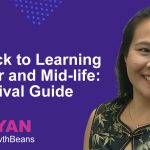
Worried About Reaching Your Career Goals? Here Are Some Tips for Singapore’s Broad Middle Workers (PODCAST)
5 minute read

4 Positive Work Habits for Your Mental Well-being
Insights for mature workers to stay relevant

Career Confessions: What Retirement? He Chose to Embark on a Career Switch in His 60s!
14 minute read

Jobs to Consider in the Second Half of Your Career for Mature Workers, and the Skills You’ll Need

Knowledge Sharing: How and Why Guiding Younger Colleagues Benefits Your Career
Home / 7 Common Job Interview Questions You Must Prepare For
Find more jobs like these at MyCareersFuture Job Portal

An initiative by Workforce Singapore
Whether you are a fresh graduate searching for a new entry-level job or a seasoned veteran considering a career switch, Workipedia by MyCareersFuture is the one-stop website for all your job application needs.
We’re sorry, this site is currently experiencing technical difficulties. Please try again in a few moments. Exception: request blocked

- Events and Workshops
- Search search
- Employment Practices
- Recruitment
Job Interviews
How to conduct fair job interviews to get the right candidate for your job.
What Is a Fair Job Interview
Fair job interviews focus on merit-based and non-discriminatory interview processes and questions.
Why It Matters
Holding a fair interviewing process and asking fair questions can help you:
- Get the right candidate for the job.
- Ensure there is no bias in the process.
- Be open about specific requirements, such as the need for overseas travel.
- Position your organisation as a forward-thinking, progressive employer.
What You Must Do to Be Fair
The Tripartite Guidelines state what you must do as a fair employer. In general, employers should exercise care and diligence in collecting sensitive and/or personal information and must be able to communicate why the information may be necessary as part of their evaluation of the candidate’s potential success in the job.
- Create a list of selection criteria and apply this consistently for all candidates.
- Create a list of interview questions that are directly related to the selection criteria. You may refer to TAFEP's list of non-discriminatory interview questions for more guidance.
- Create a proper record of the interview, assessment process and job offer made, and keep these documents for at least one year.
- Avoid asking discriminatory questions. If you must ask questions that may be perceived as discriminatory, explain these reasons to your interviewee.
- Be transparent on your job requirements. For example, you should inform your interviewee if the job has irregular working hours or requires frequent overseas travel.
- If you require a specific dress code, bring up the request in a clear and sensitive manner.
- If you are unable to accommodate religious practices due to operational reasons, share your concerns in a clear and sensitive manner.
- If tests are to be used for selection purposes, ensure that they are related to the job requirements, and review them regularly for relevance and bias in content or scoring.
For example, for the job of a Project Manager:

Tripartite Guidelines
Refer to the Tripartite Guidelines on Fair Employment Practices to ensure that you abide by the guidelines on all the relevant practices.
How to Be Progressive
Here are some progressive employment practices you can consider. These are based on the Tripartite Standard on Recruitment Practices , which you can adopt to distinguish your organisation.
Train Hiring Staff to Conduct Fair Interviews
Encourage hiring managers and staff who have recruitment responsibilities to attend on-the-job training, workshops, courses, or briefing sessions on how to conduct fair interviews.
The training should cover:
- The Tripartite Guidelines on Fair Employment Practices .
- Common pitfalls in interviews (e.g., stereotyping and making non-job related comments).
- Interview and selection procedures (e.g., how to develop and use objective criteria; the importance of using the same criteria consistently; and how to rate and rank candidates for selection objectively).
You may approach TAFEP or the Singapore National Employers Federation (SNEF) for workshops on how to conduct fair and unbiased interviews.
Use an Evaluation Form to Remember Your Interviewees
To minimise bias, use an interview evaluation form instead of photographs to remember your interviewees. This would allow you to document their strengths and weaknesses more effectively. If possible, try to have more than one interviewer in every interview.
Download a sample interview evaluation form (Word document).
You can prevent misunderstanding and disputes by keeping a proper record of the interview, assessment process, test (if any) and job offer made for at least one year.
Manage Expectations on Salary and Communications
For more information on these practices:
- Download the Fair Recruitment & Selection Handbook (PDF).
- Browse our resource collection to get tips, tools and ideas and learn from case studies and interviews with progressive employers.
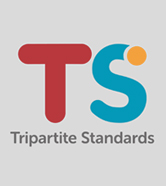
Tripartite Standards
If you already have fair and progressive employment practices, you can adopt the Tripartite Standards, an initiative to recognise organisations with good practices.
You may also like
Briefing/Talk [TRD] Tackling the Roots of Discrimination in the Workplace
Clinic/Consultation Tripartite Standards Clinic - Recruitment Practices
Briefing/Talk [TRD] Tackling the Roots of Discrimination in the Workplace 16 May 2024
Advisory – Beware of scams and phishing emails
Send us feedback if you receive any suspicious or inappropriate emails asking for your personal information. The email may not have been sent by TAFEP. Do not click on any link or open any attachments. Your feedback can help us fight against scammers – contact us immediately. We use cookies on tal.sg/tafep to provide a better user experience that's more tailored to you. If you continue, you are giving us your consent to receive cookies only on this site. To decline cookies at any time, simply adjust your browser settings. Read our Privacy Statement.

IMAGES
VIDEO
COMMENTS
Filipino applicants and applicants of other nationalities residing in the Philippines: You must obtain a "Certificate of No Marriage" (CENOMAR) from the Philippines Statistics Authority (PSA). The PSA must send the CENOMAR by mail directly to the Immigrant Visa Unit, Consular Section, U.S. Embassy Singapore, 27 Napier Road, Singapore 258508.
The visa interview at the Singaporean embassy is often the most stressful part, as you will be asked questions about your travel plans, work, finances, and more. Proper preparation is key to having a smooth interview and increasing your chances of visa approval.
Applicants scheduling visa appointments in a location different from their place of residence should check post websites for nonresident wait times. Select a U.S. Embassy or Consulate: Wait Times for Embassy/Consulate. Visa Wait Times. Nonimmigrant Visa Type. Appointment Wait Time. Interview Required Students/Exchange Visitors (F, M, J) -- days.
Check if You Need an Entry Visa. Visa Requirements. Travel Documents by Countries and Places. If you hold a travel document issued by one of the countries or places listed below, you will require a valid Singapore entry visa to travel to, and seek entry, into Singapore. Possession of a valid visa does not guarantee entry into Singapore.
6. Singapore is a safe and stable place to visit. Singapore is also well-known for its generally stable political and business climate, often ranked as one of the least corrupt countries in the world. Strikes that can disrupt travel plans are practically nonexistent here.
C: Create a plan for further action. Actions you took. When you talk about your weaknesses, accompany it with actions that are in progress to overcome the weakness. Example: You may be applying to ...
Here are 10 common interview questions in Singapore to review and prepare for: 1. What did you like or dislike about your previous role? The interviewer may ask you this question to learn about your personality, identify your working style and assess whether you're a good fit for the job.
To enter Singapore, travellers must meet the following immigration requirements: i) Passport Validity. Have minimum 6-month passport validity if you are not a Singapore passport holder. ii) Visa. Short term travellers holding a passport or travel document from a visa-required country/region must apply for a Visa.
Since June 2020 Andreas has been with InterContinental Singapore, the flagship hotel of IHG Hotels & Resorts in Singapore. Having worked across Africa, Europe and APAC, his speciality ranges from luxury and lifestyle boutique resorts to luxury city hotels. In this interview Andreas shares how he is always looking for ways to improve the guest ...
Interview: Singapore Tourism Board CEO on Reinventing a Destination. Greg Oates, Skift. March 25th, 2015 at 8:00 AM EDT. ... For 2015, Lonely Planet named Singapore its #1 top place to travel.
How to Apply for Global Entry Citizens of Singapore are eligible for Global Entry. Applications must be submitted through CBP's Trusted Traveler Programs (TTP) website. The non-refundable application fee for a five-year Global Entry membership is $100 and applications must be made online. Once the application is approved, a CBP officer will conduct a scheduled interview with the applicant ...
10 general Singapore Airlines interview questions. Singapore Airlines interview questions assess an applicant's suitability for the job and their ability to perform the duties required. When you work for an airline company, you can usually find jobs in customer service, ticketing, sales and marketing, operations, engineering and maintenance.
Singapore is more than its tourist attractions. It's constantly evolving, reinventing, and reimagining itself, with people who are passionate about creating new possibilities. It's not just about what you can do here, it's about what you can be. learn more. Get inspired by the official destination website on what to see and do in Singapore.
The Land Transport Authority (LTA) conducts the Household Travel Survey (HTS) to gather valuable insights into travel behaviour and plan for Singapore's future transportation needs. Every four to five years, this large-scale survey reaches approximately 60,000 respondents across the island. Your participation in the HTS will help shape the ...
U.S. Embassy. 27 Napier Road. Singapore, 258508. Phone: 6-476-9001. Directions: U.S. Embassy Singapore is not an official Enrollment center. We provide GE Interviews at the Embassy as an accommodation, subject to terms and conditions below. Notes: NO WALK-INS ALLOWED.
04:15. Singapore Budget Travel Guide: 5 Days Under S$140 | The Travel Intern. 05:39. 5 Best Places To Drone in Singapore | DJI AIR 2S. 03:55. 7 Best Attractions Along The Rail Corridor — A Scenic Hiking Trail in Singapore. 02:21. Bukit Brown Trail Hiking Guide: Secret Hiking Trail off The Rail Corridor | Hiking in Singapore. 05:00.
1. "Tell me about yourself.". This may seem like an innocuous question. However, these types of interview questions are a good chance for you to show your interviewer that you are the perfect fit for the job. Typically, this is one of the first questions every interviewer will ask.
Global Entry. "Effective September 9, 2020, U.S. Customs and Border Protection (CBP) will resume the Trusted Traveler Program (TTP) interviews at the U.S. Embassy Singapore. Interviews for the Global Entry/U.S. APEC Business Travel Card programs will be provided for applicants that are conditionally approved only.". Interview guidance:
A citizen of a foreign country who seeks to enter the United States generally must first obtain a U.S. visa, which is placed in the traveler's passport. Certain international travelers may be eligible to travel to the United States without a visa under the Visa Waiver Program, which is administered by the Department of Homeland Security (DHS) .
3. Tell me about a time you managed unhappy passengers during a delayed flight. Flight delays are a common occurrence at almost any airport and they can frustrate customers. It's important for a passenger service agent to know how to handle this type of situation. The hiring manager asks this question to assess how you maintain customer service ...
I interviewed at Changi Travel Services (Singapore) in Nov 2017. interviewed by both the director and manager, asked to share past experience, hiring director shared requirements of the job, size of team and upcoming plan for the new hire. hiring manager shared about the business nature and ad-hoc assignments.
Create a list of selection criteria and apply this consistently for all candidates. Create a list of interview questions that are directly related to the selection criteria. You may refer to TAFEP's list of non-discriminatory interview questions for more guidance. Create a proper record of the interview, assessment process and job offer made ...
Walk In Interview (16 May 2024, 10am - 4pm) | Middleton Preschool West Coast. EtonHouse International Holdings Pte Ltd. Pasir Panjang, Central Region. Kitchen & Sandwich Hands. (Hospitality & Tourism) 8d ago. Auxiliary Police Officer (Up to $40,000 joining bonus for Singaporean) SATS Ltd. Changi Airport, East Region.